Depending who you speak to or which website you read, Exarchia is a dangerous area in Athens that should be avoided at all costs OR it the coolest area in Athens that is the only place to stay.
Exarchia is where we stayed for our four days in Athens. We definitely made the right choice.
Known for accommodating the ‘rebels’ of society at any given time; socialists, anarchists, anti-fascists, artists and intellects have all called Exarchia home since the 1980’s. Scattered with bookshops, coffee shops, wine bars and organic shops this ’edgy’ area is akin to East London – not at all dodgy, just interesting and varied.
Like any good ‘revolutionary’ neighbourhood it is adorned with graffiti, posters and banners – all of varying creativity and skill but all doing their part to tell the story of this city, past and present.
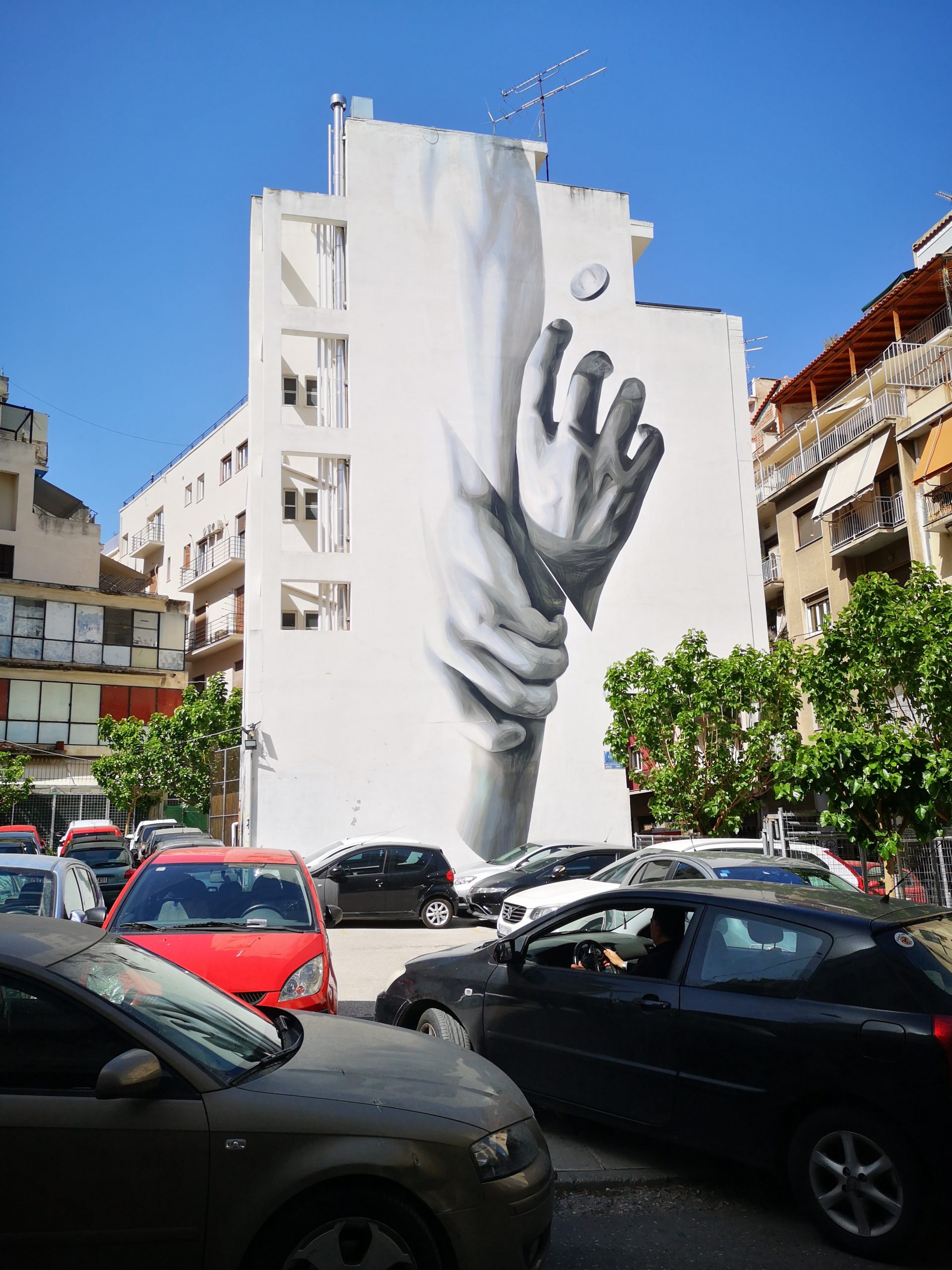

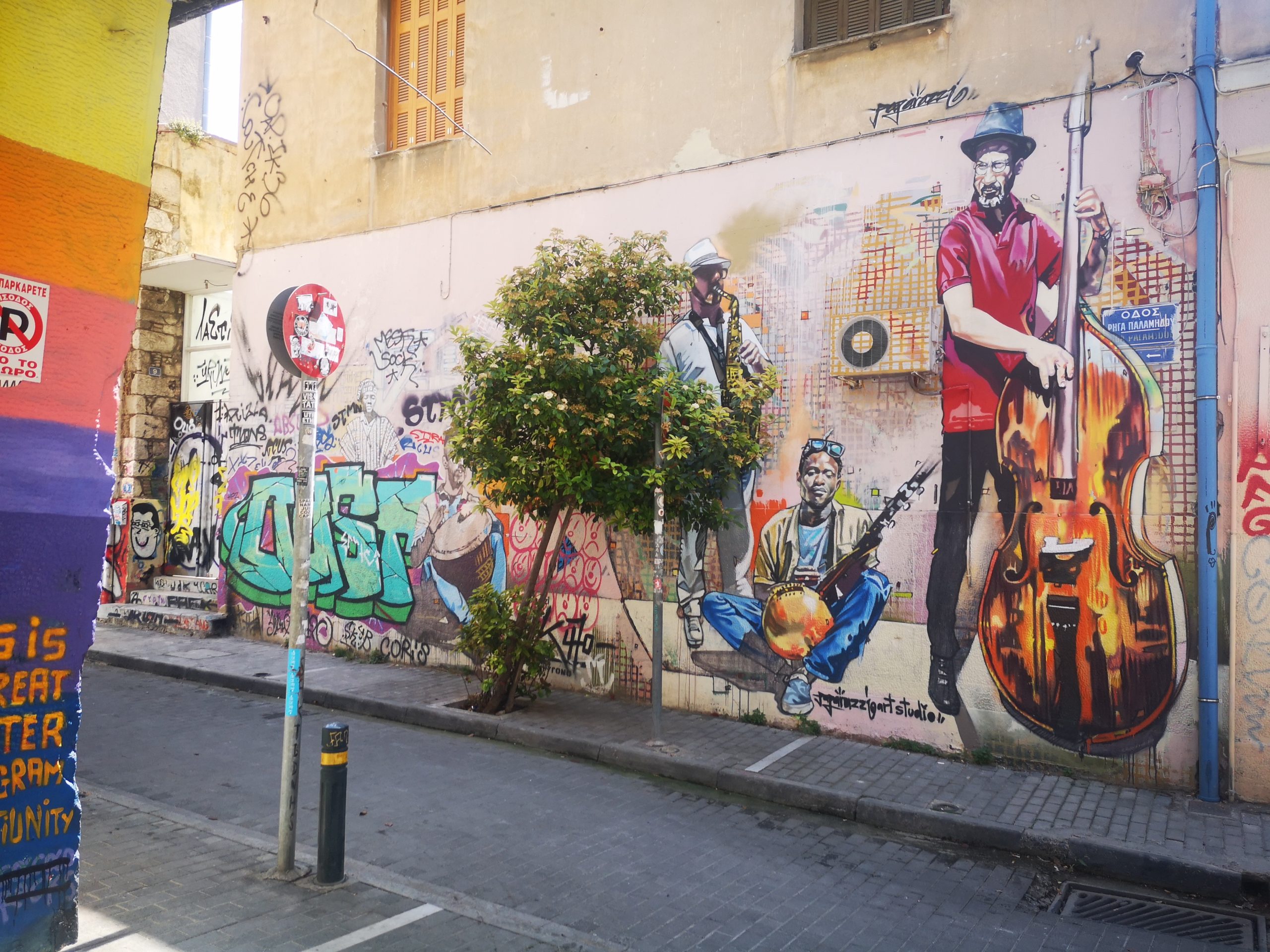

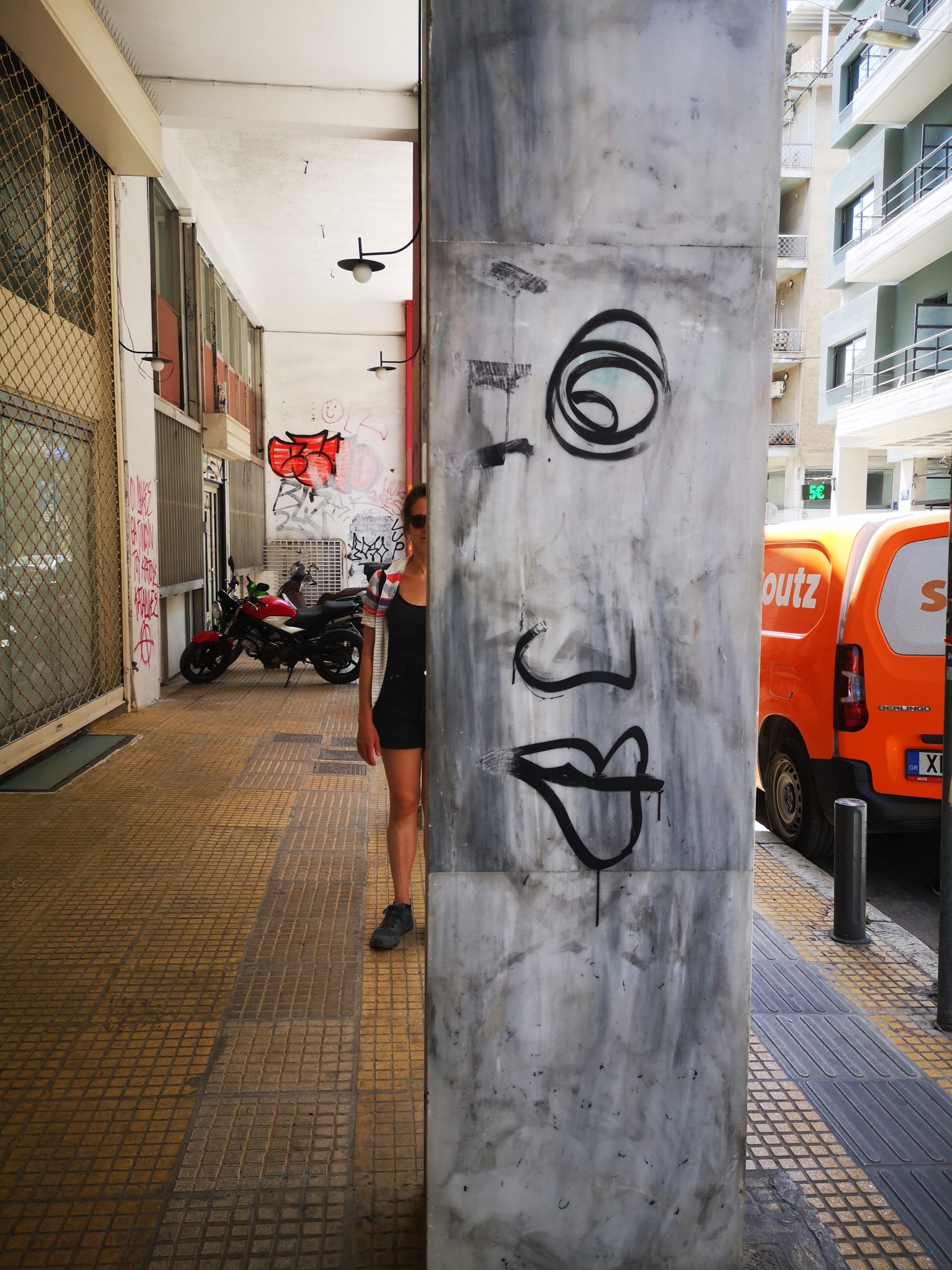
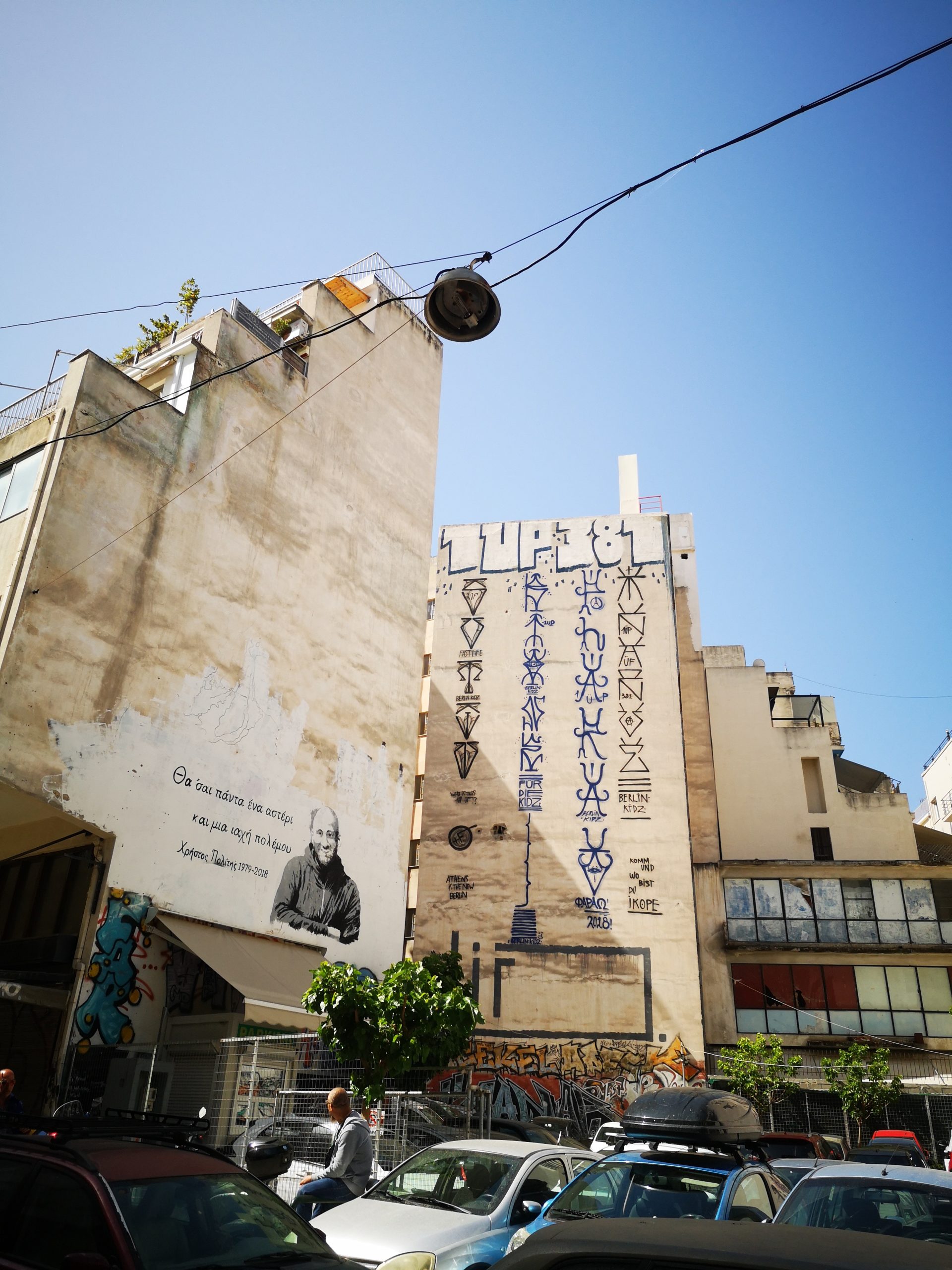

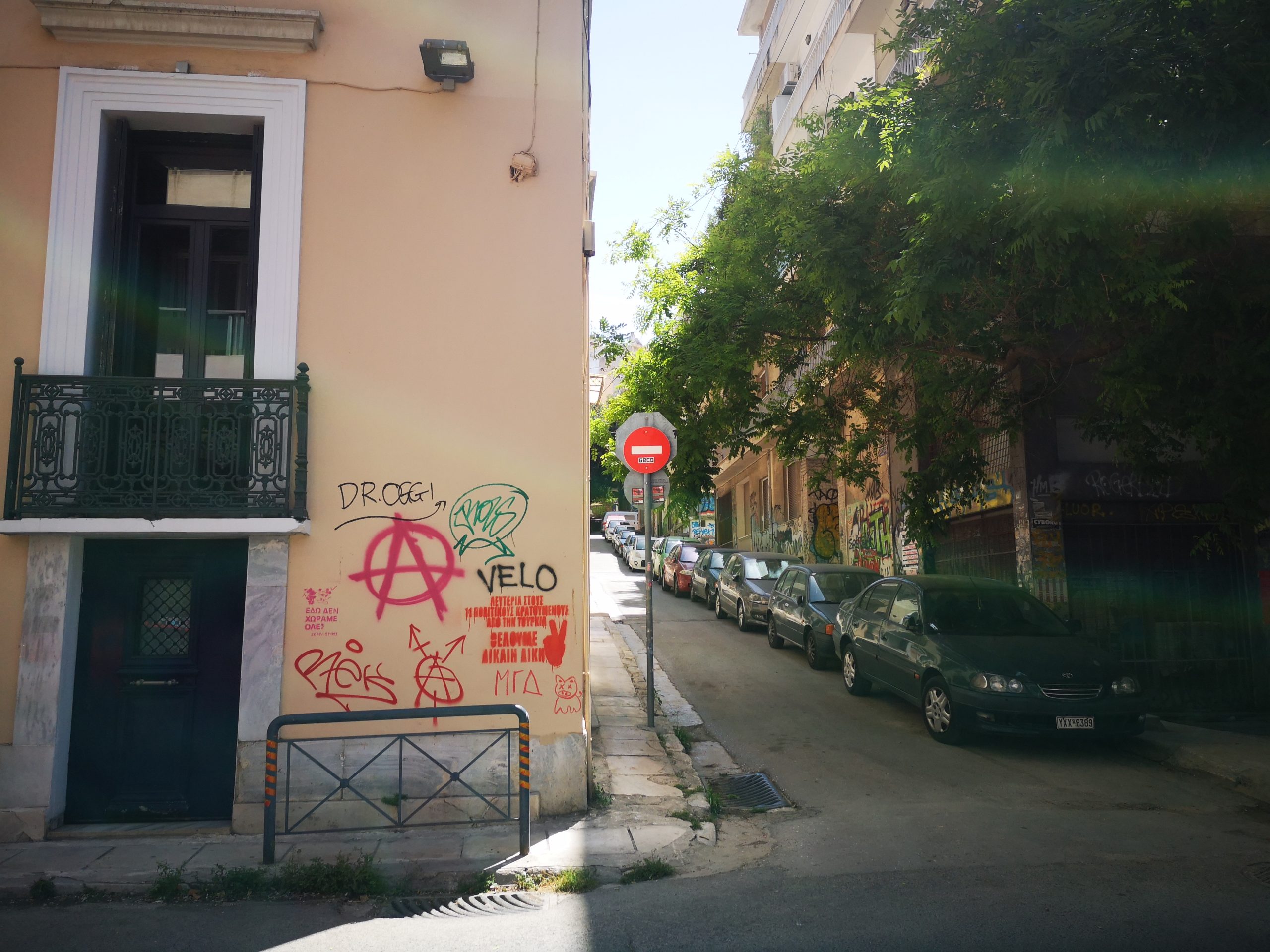

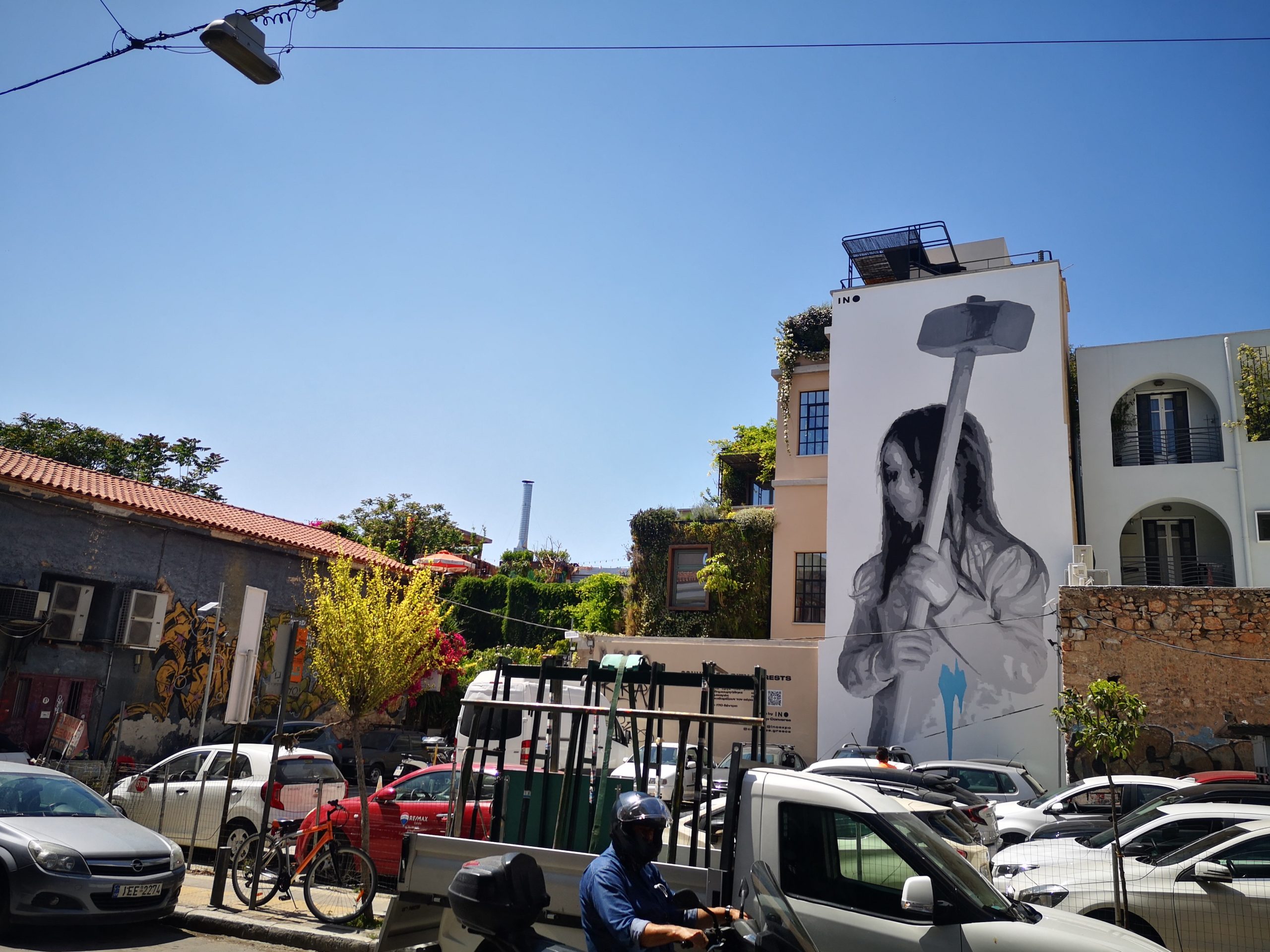
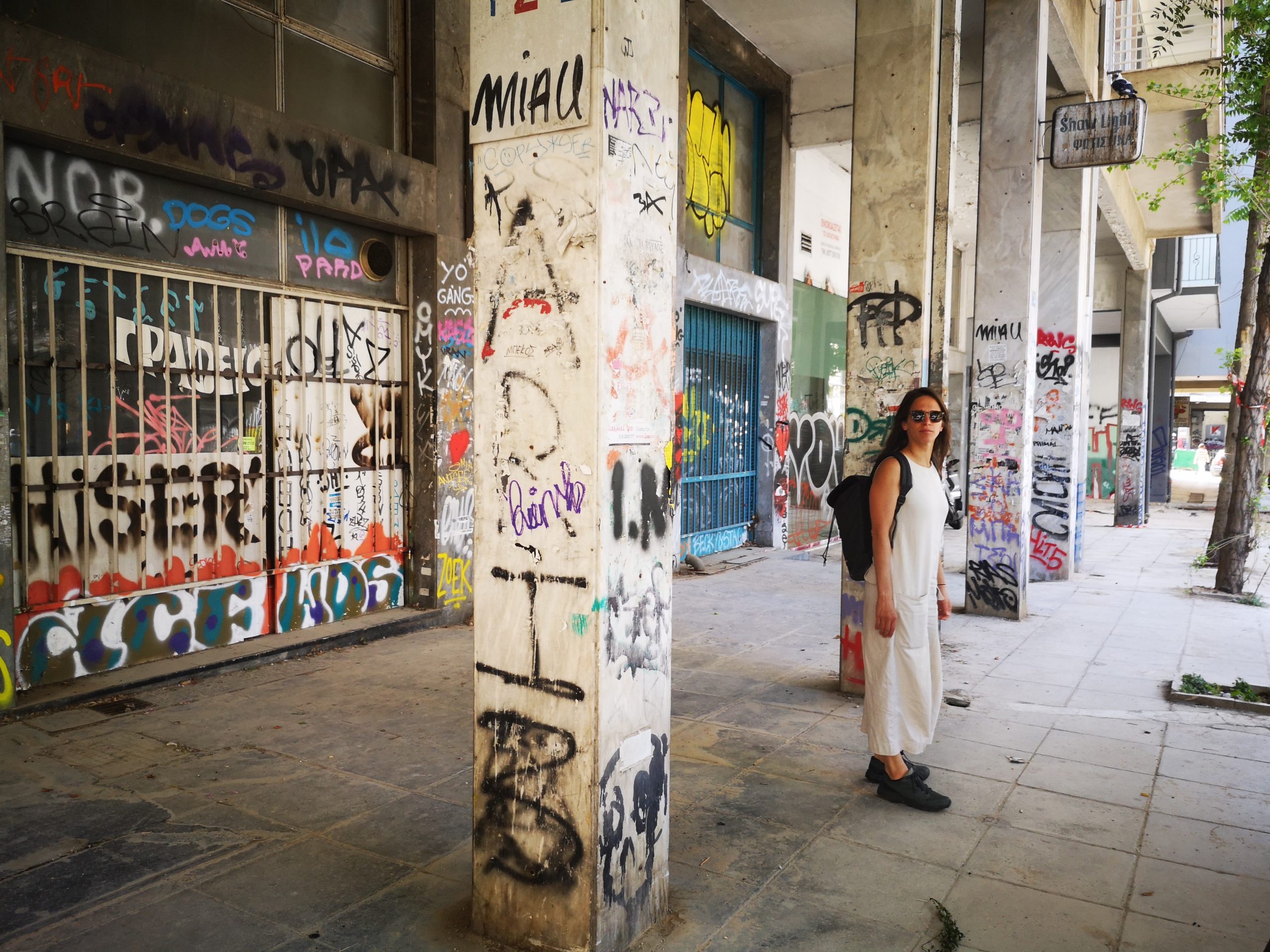


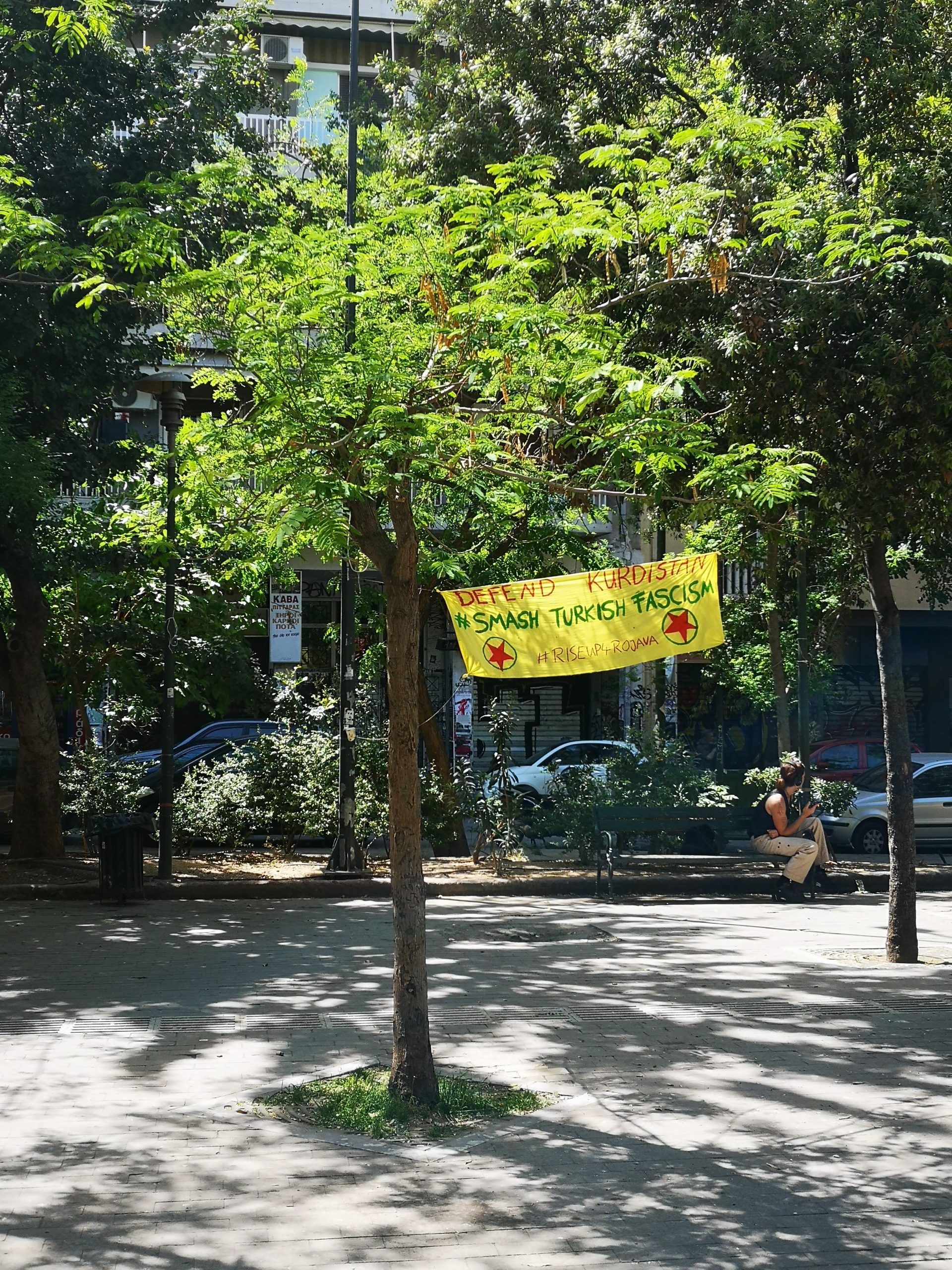
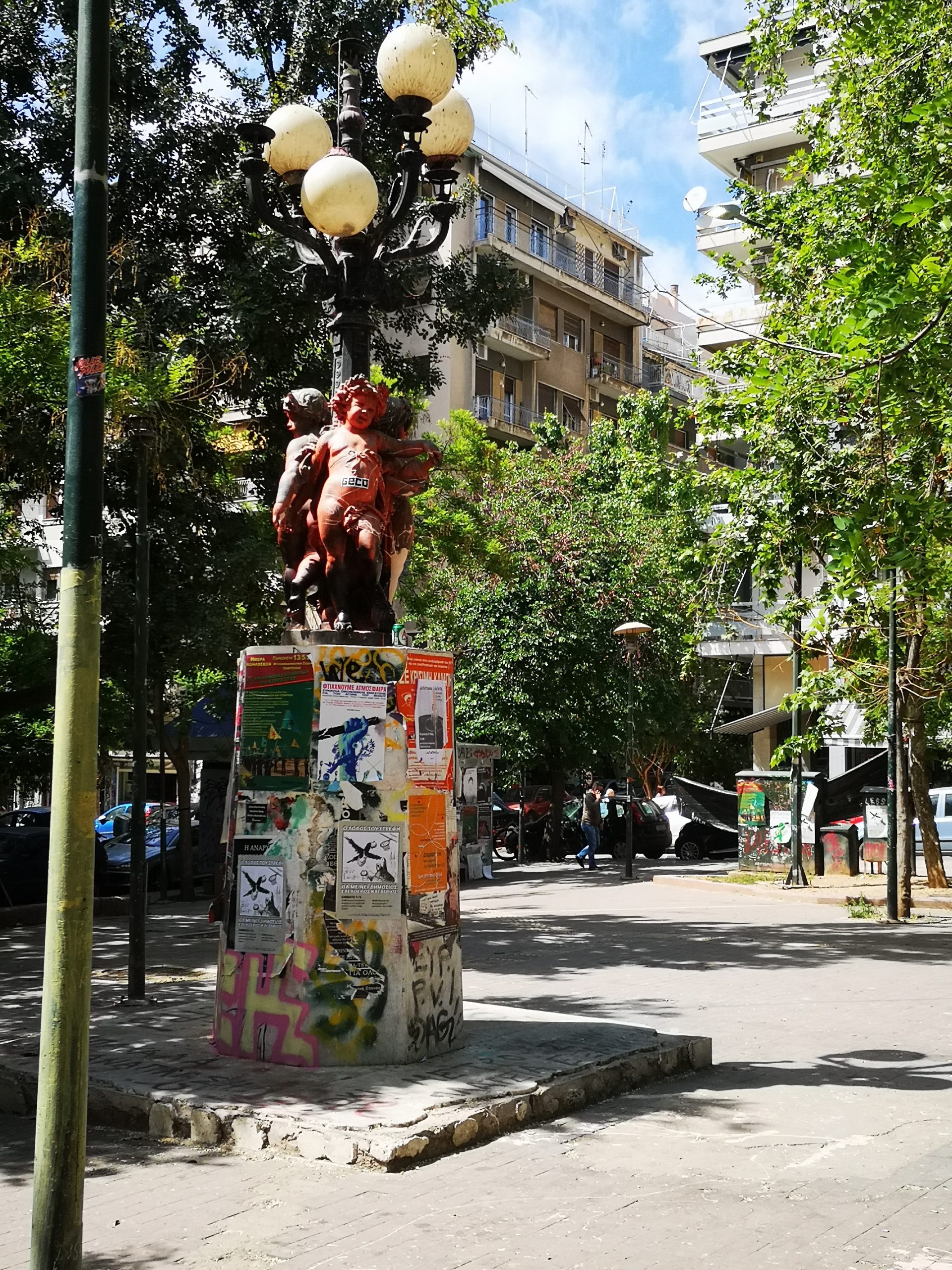
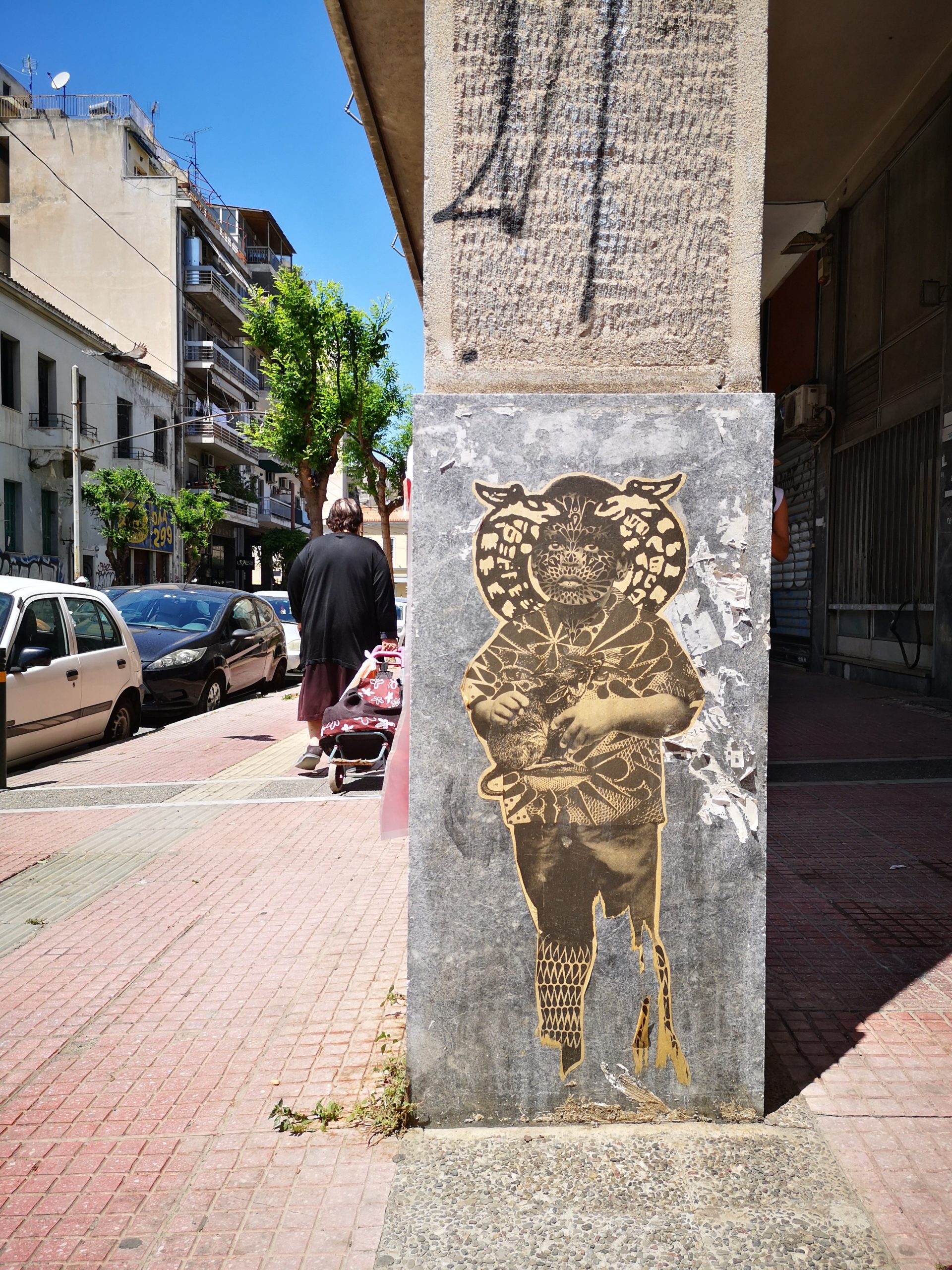
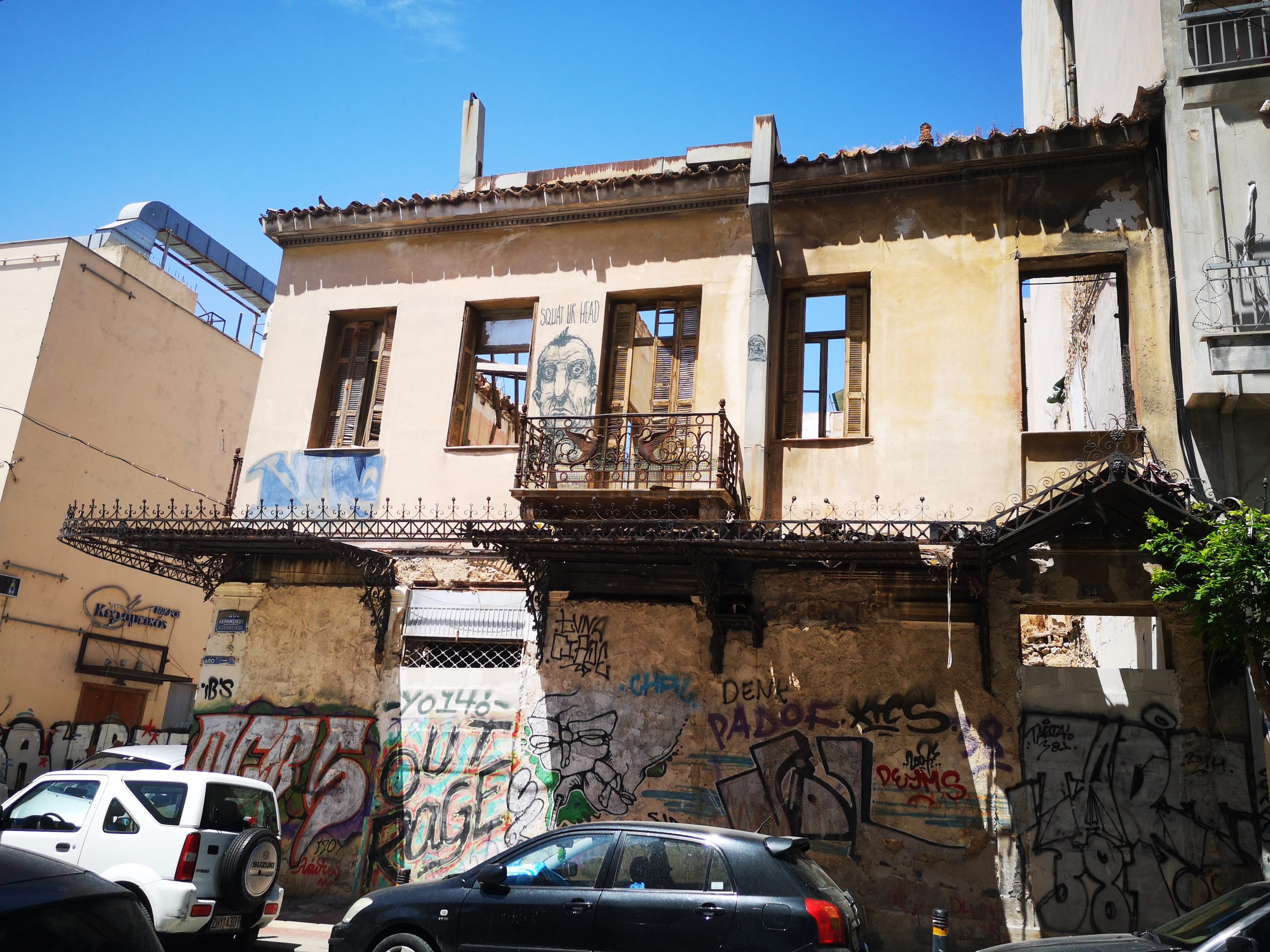
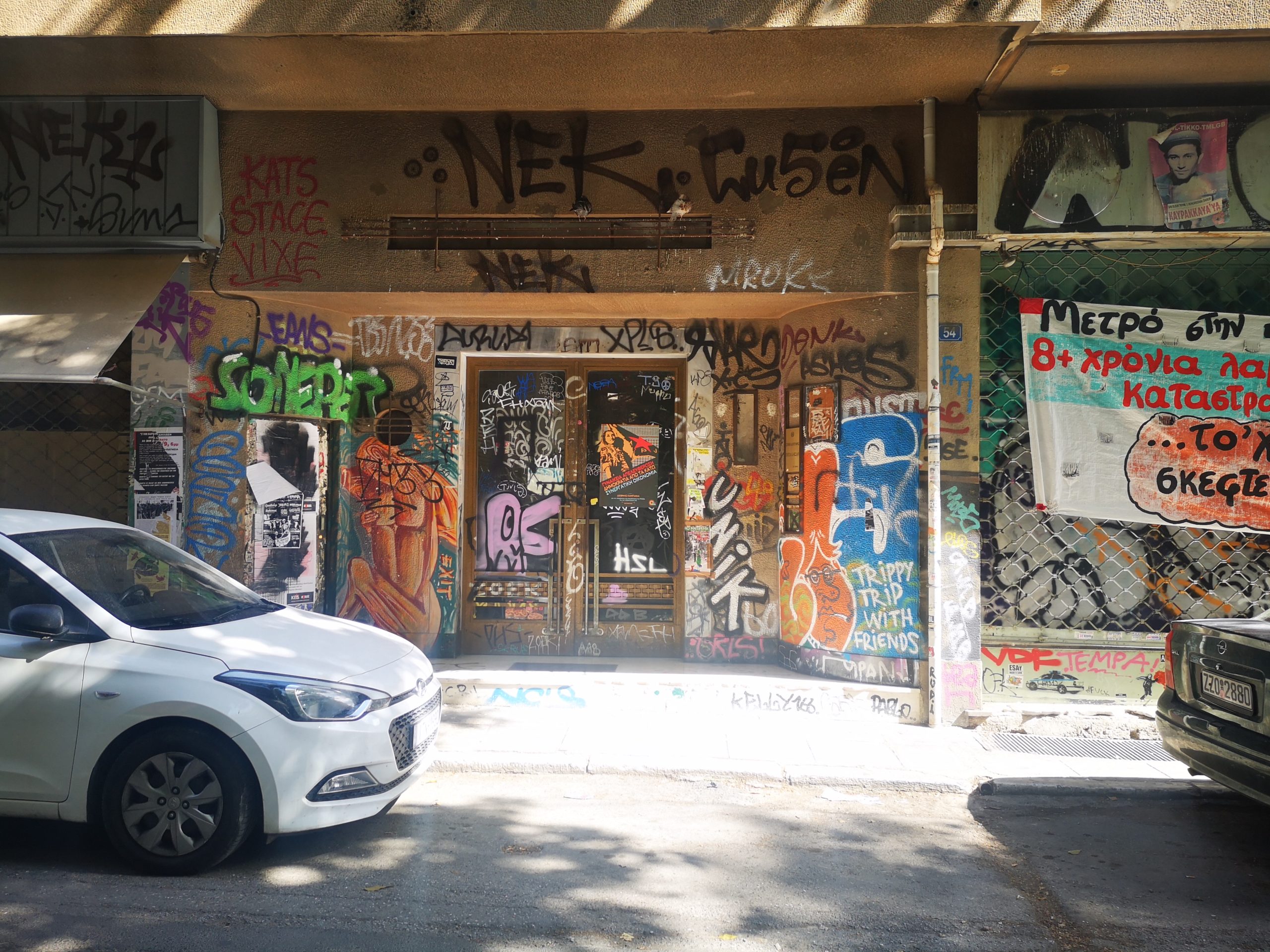
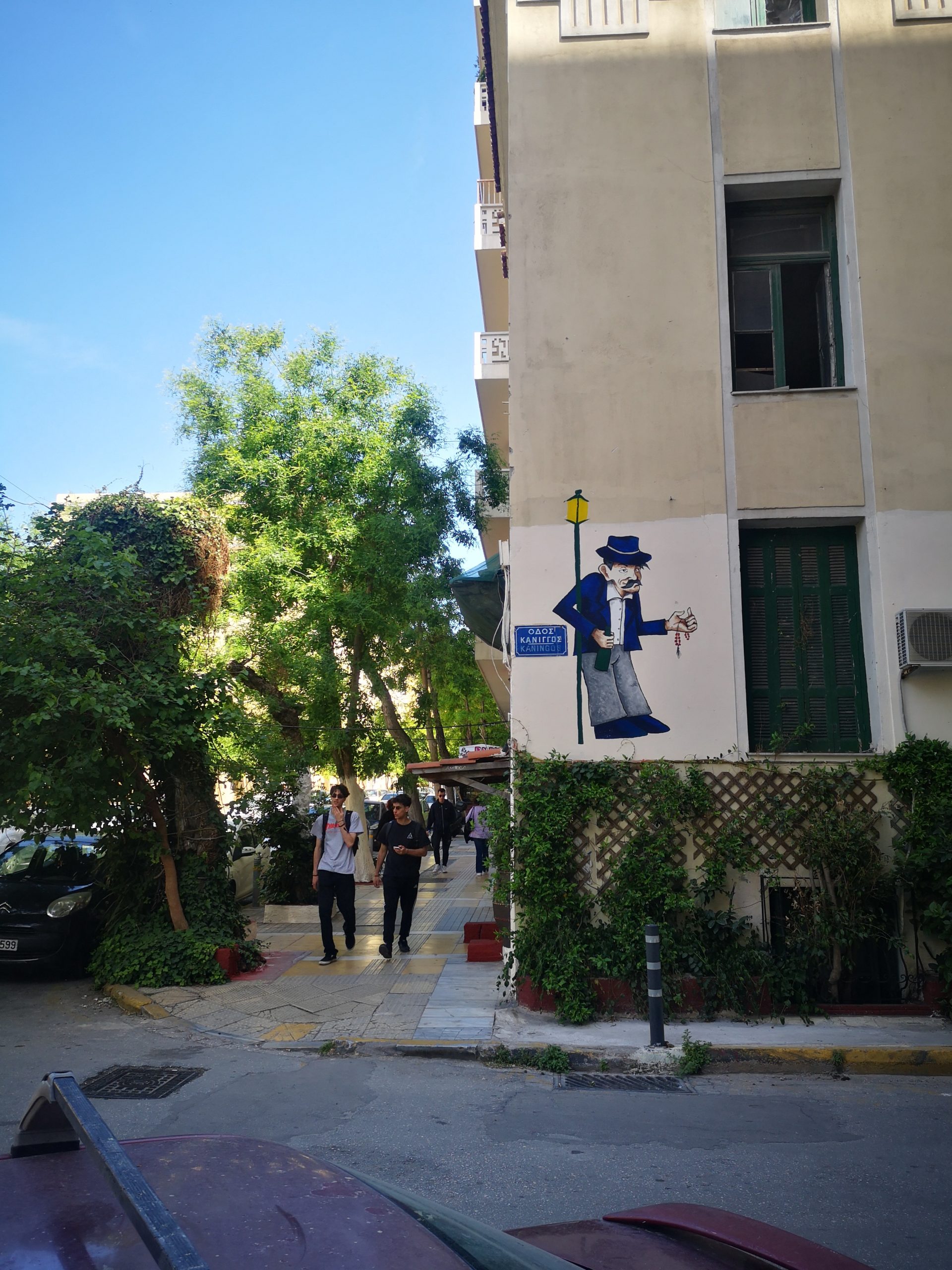
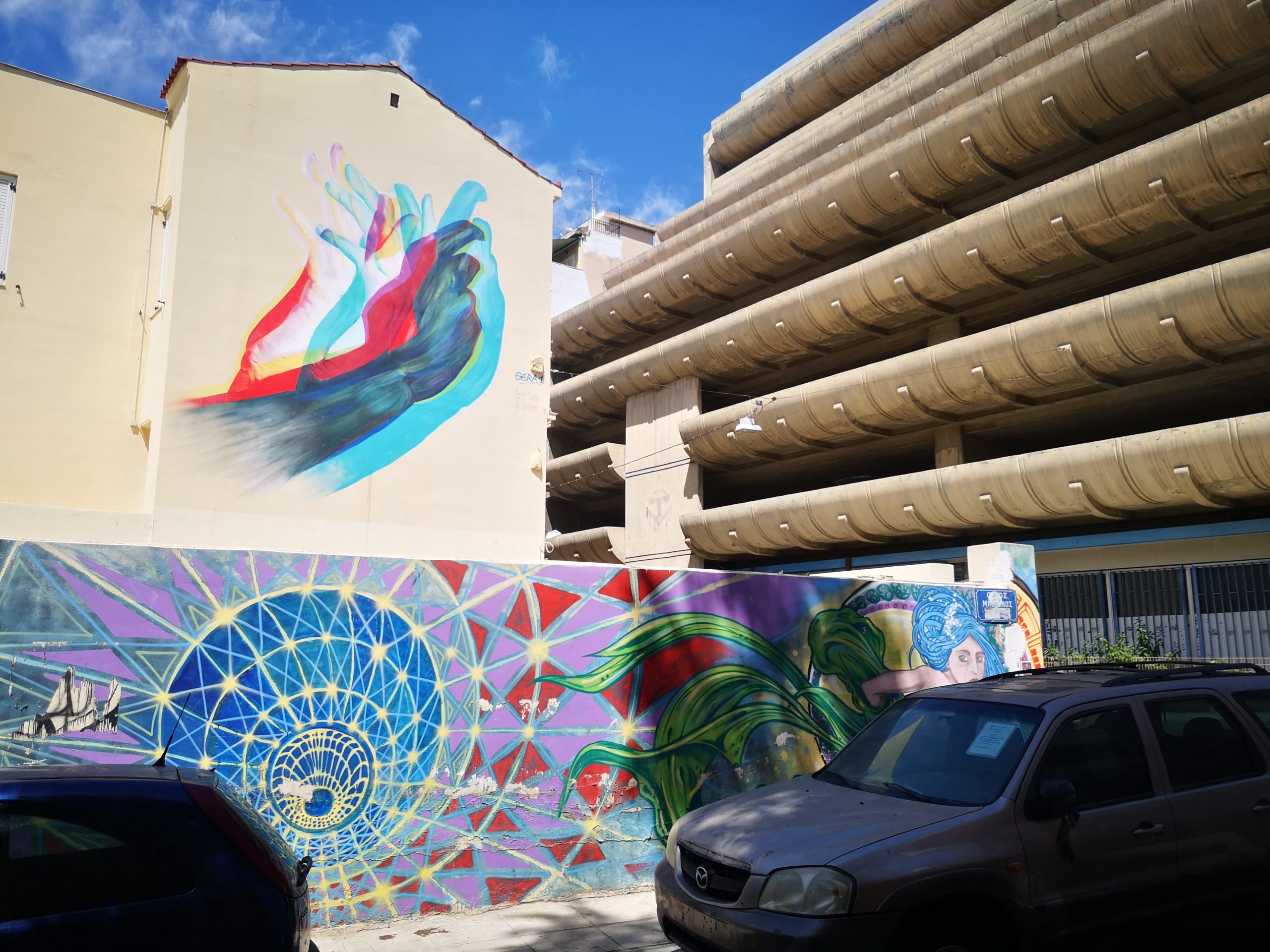

Greece’s financial crisis (aka ’The Crisis’ to the Greeks) is still common discourse and naturally it still divides political opinions and allegiance. The country after a shopping spree became bankrupt in 2008 and suggested that it could default on its debt, but after a referendum and a refusal from the EU, a bailout path was taken via substantial loans from the EU and personal investors.
Along with a repayment scheme for the EU’s bailout loan, severe austerity measures were imposed which plunged the country into a deep recession from which they only remerged from in 2017. It was the biggest financial rescue of a bankrupt country in history – having paid back approx 50 billion euros to the EU so far, Greece has scheduled the rest of the debt payments beyond 2060.
For the visitor none of this financial strife is now felt in Athens – the city is pulsing with energy – though for many Greeks the aftershock is still felt, especially outside the capital.
The very first night, on a Sunday, we found a fully packed and free techno rave in the Central market just moments from our flat. Coupled with meeting the ever-effervescent Bradley (a friend from New York days), it seems Athens was a city very much Alive!
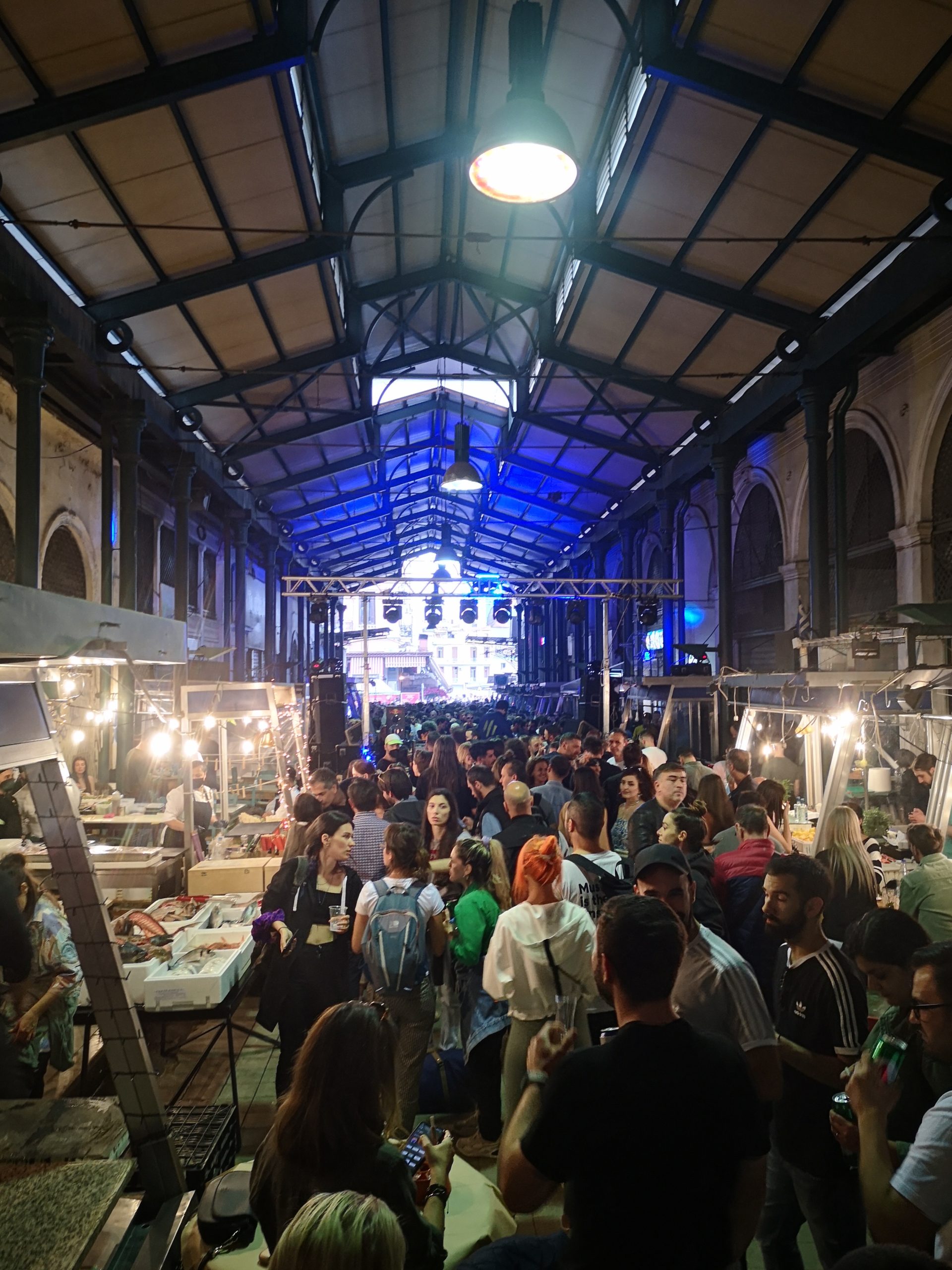

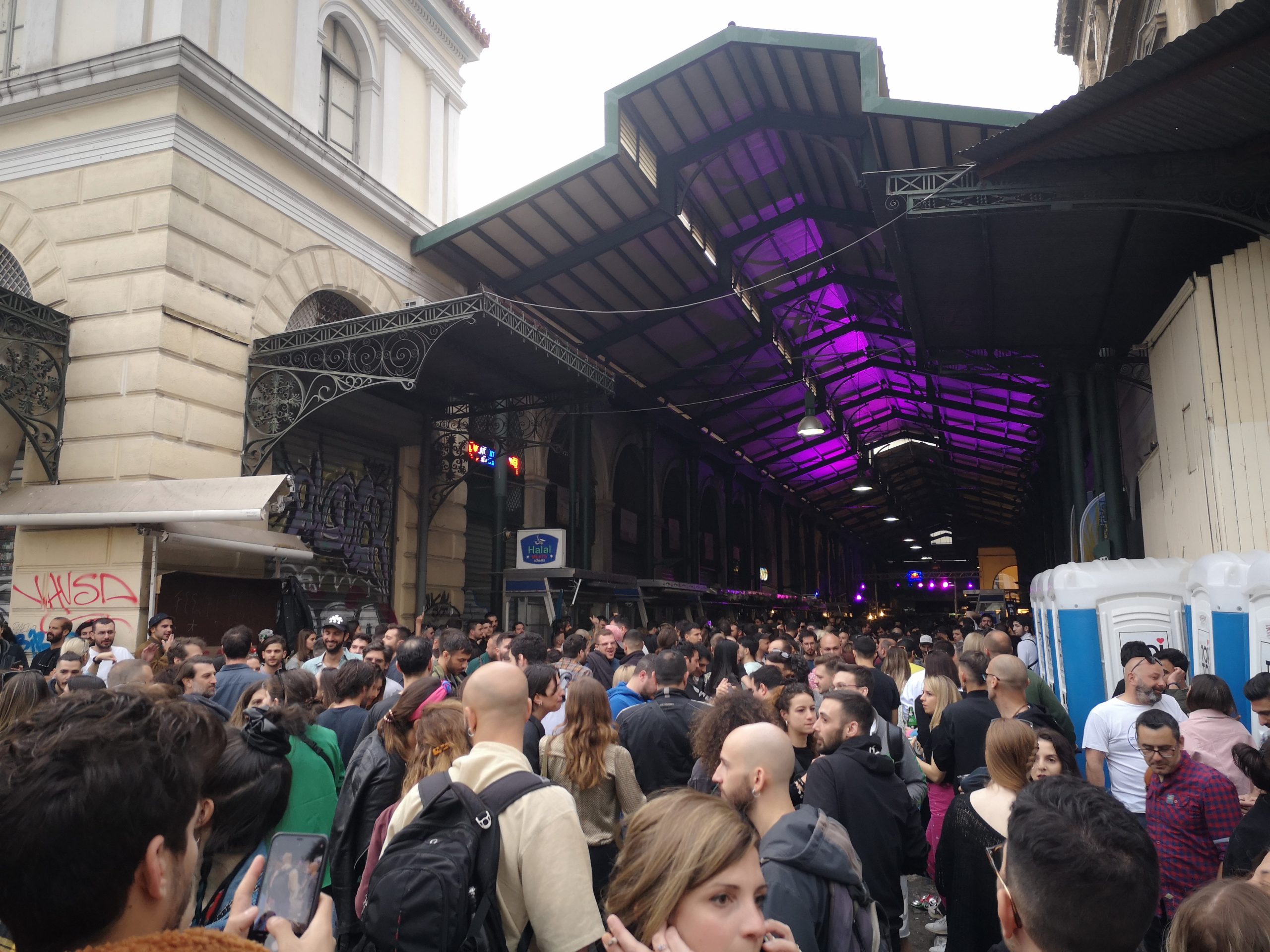
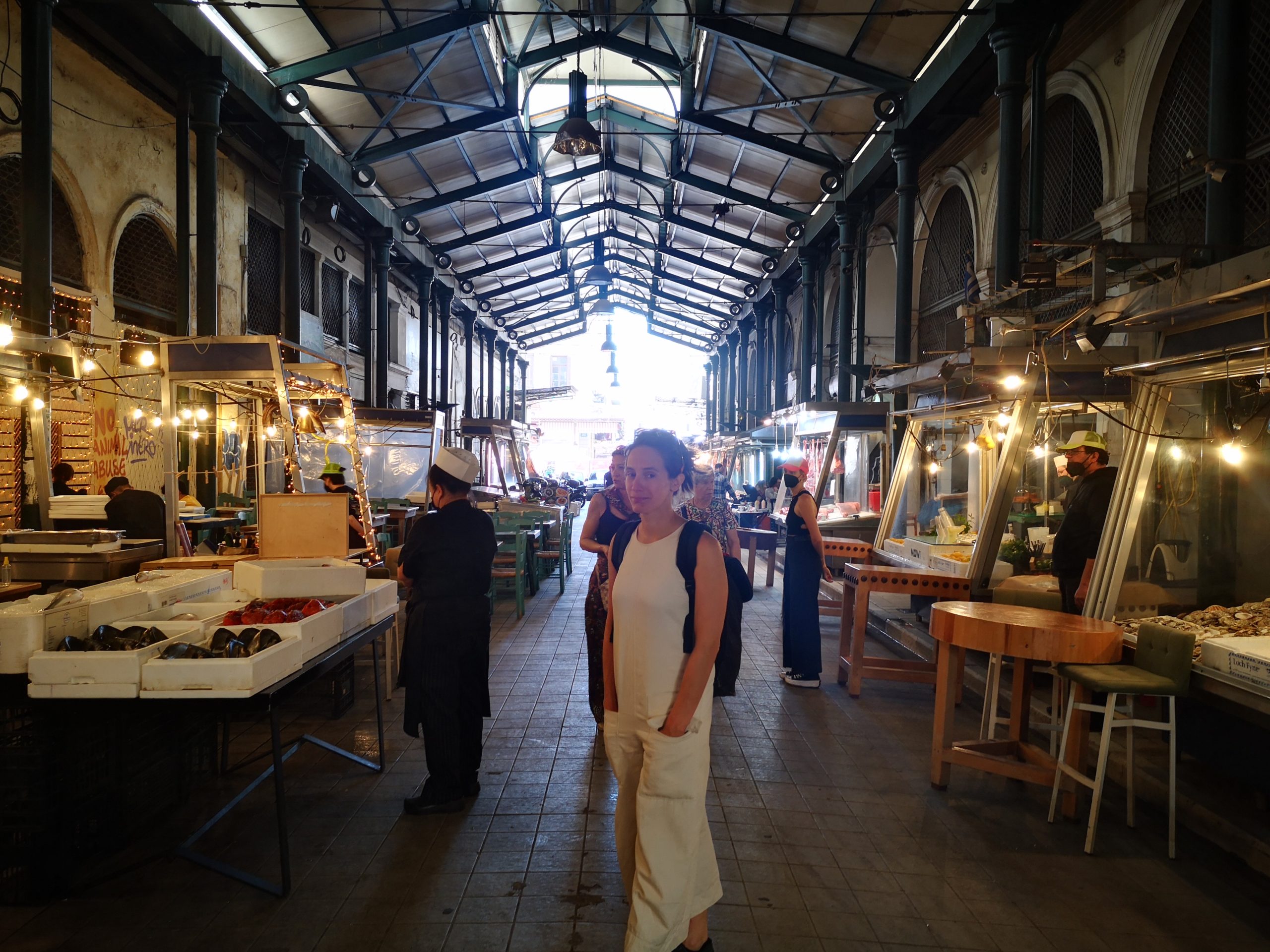

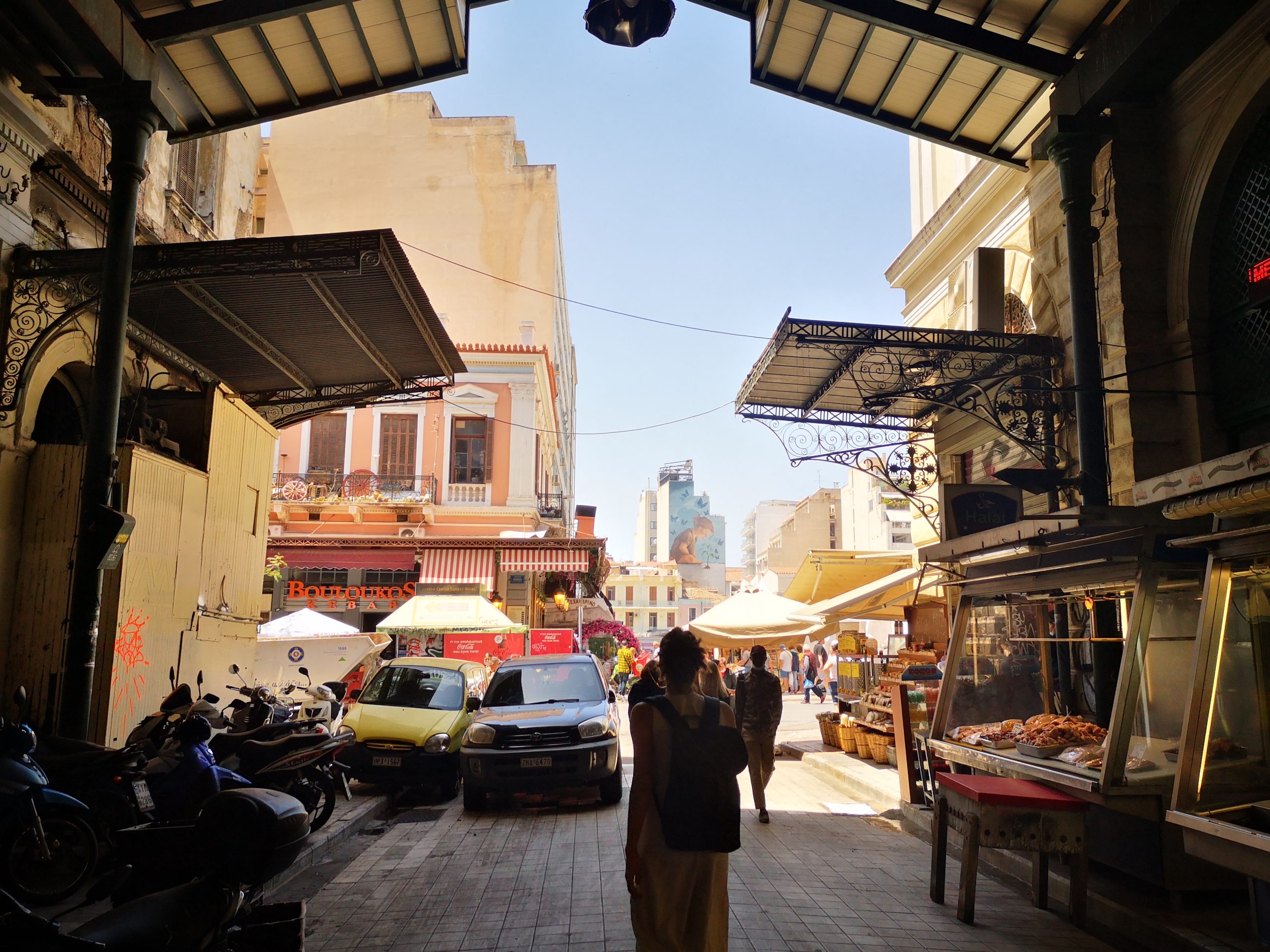
To beat the crowds and the heat it was an early start to get to the top of the Acropolis. Using a downloaded audio guide, we self-guided ourselves round the sites, absorbing tales of warring gods and mortals carved into temples from 5th century BC Ancient Greek grandeur.
It is a colossal site, which teeters high upon a rocky crag overlooking the now sprawling city below it. The collection of buildings were created during the Golden Age for Ancient Greece and like anything great drew the attention and destruction from many civilisations and empires to come. The whole area is seeped and depicts known myths and legends; from the fight between Athena and Poseidon for the naming of the Ancient City itself, fights between the Giants and the Olympic gods, all female-led Amazonian wars against the Greeks, the Trojan War, Pandora’s box etc. The political, architectural and theological significant of the Acropolis cannot be understood in a day but it certainly is a must for anyone visiting Athens.
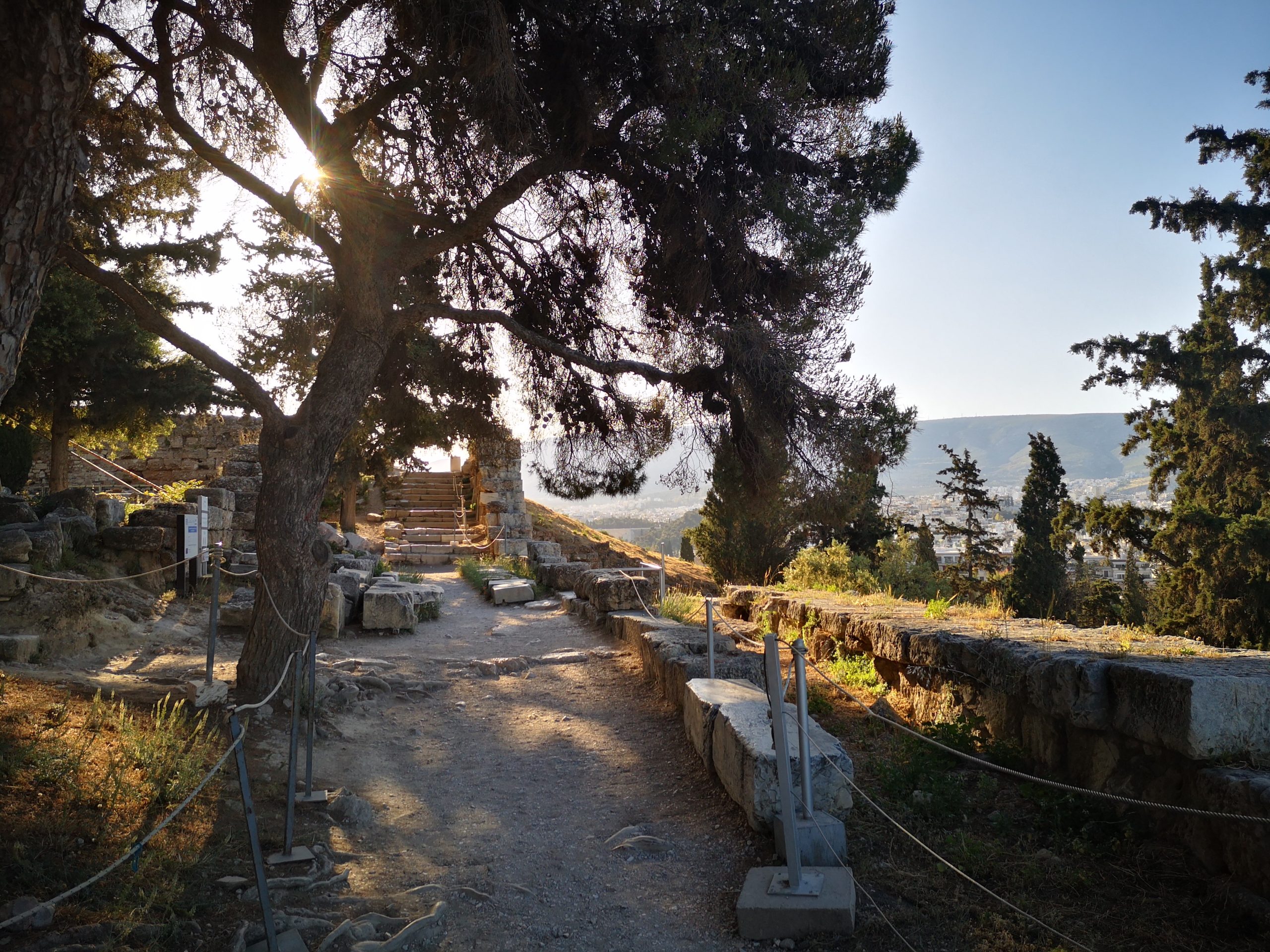
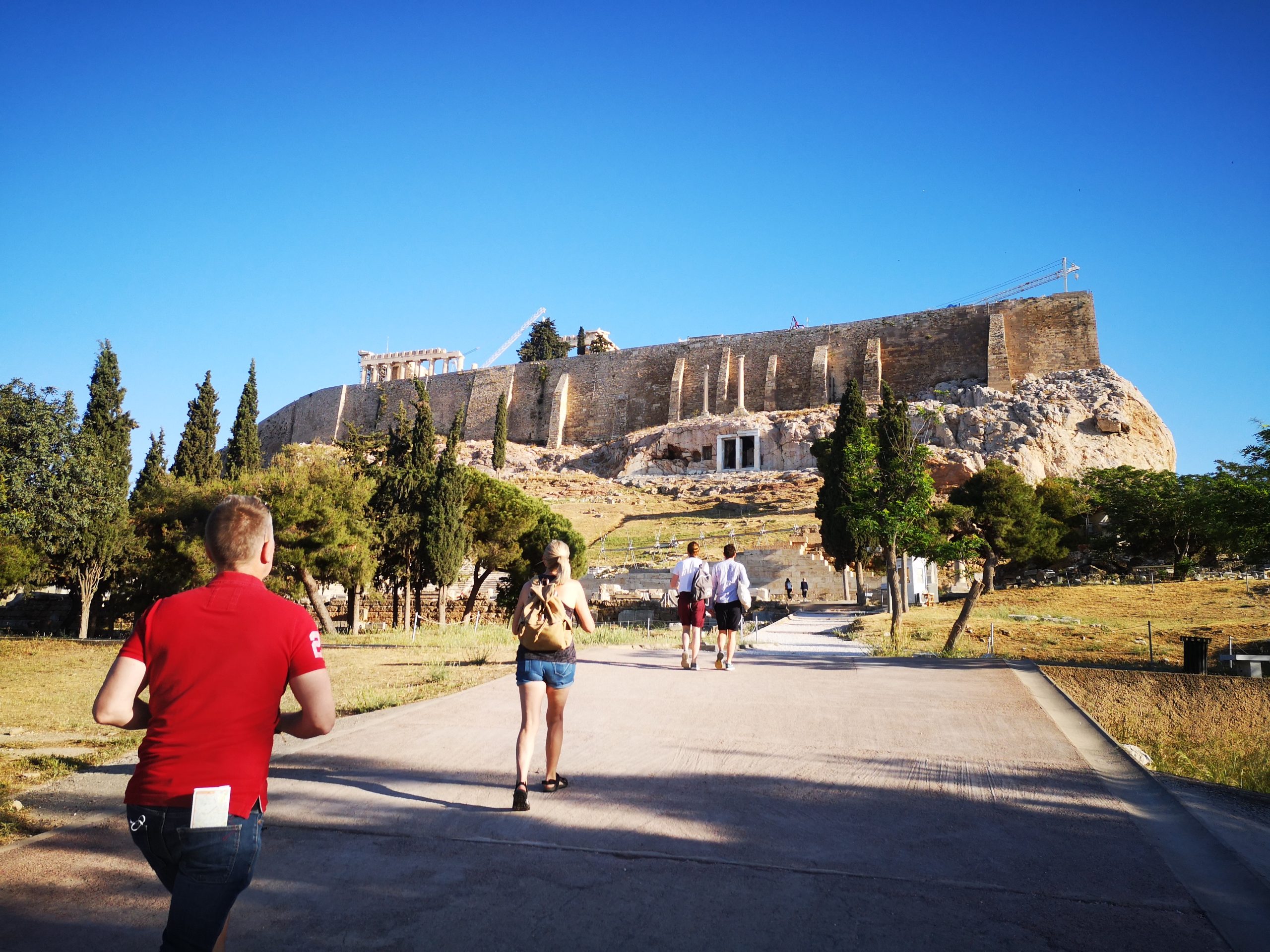
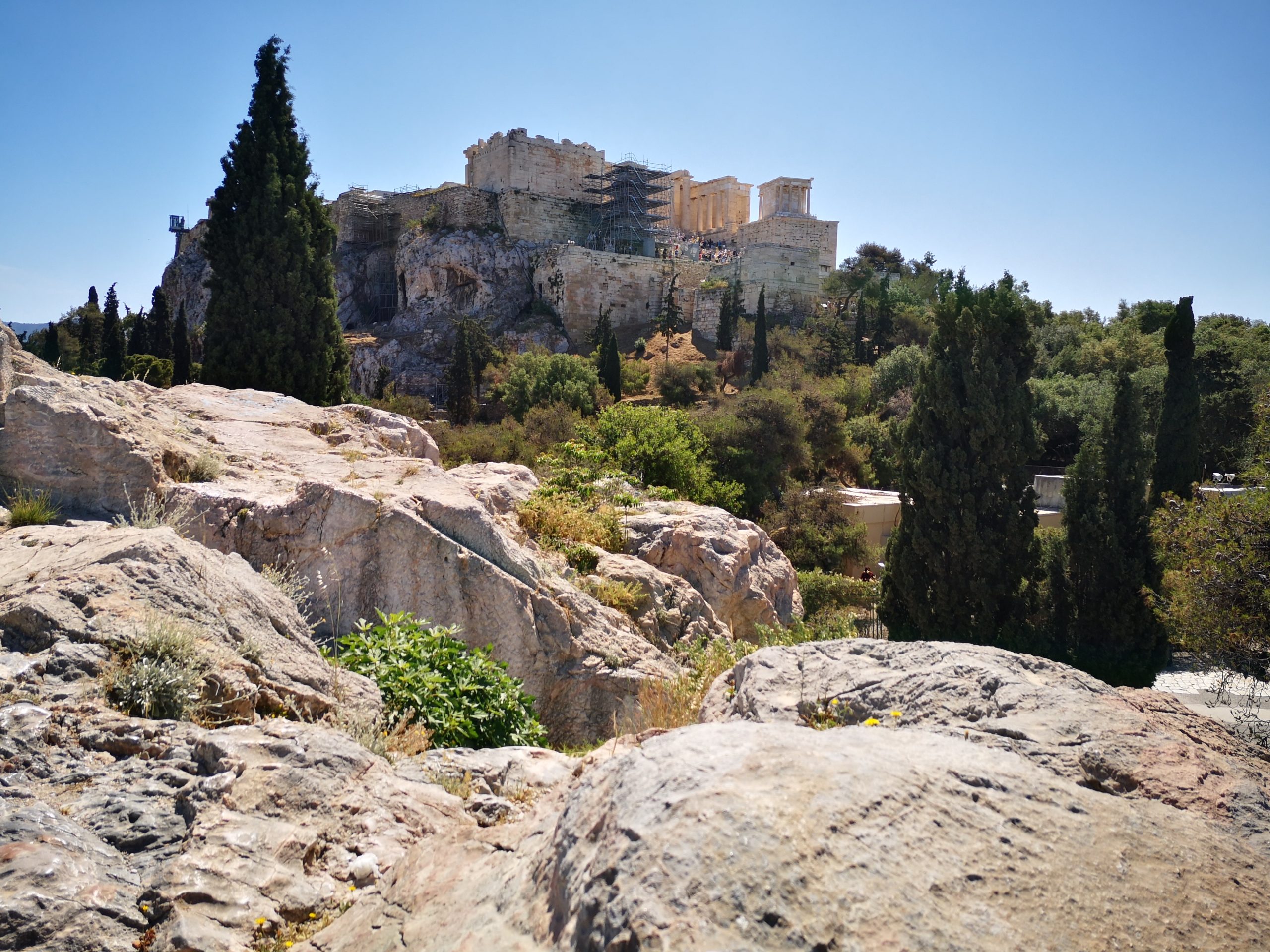
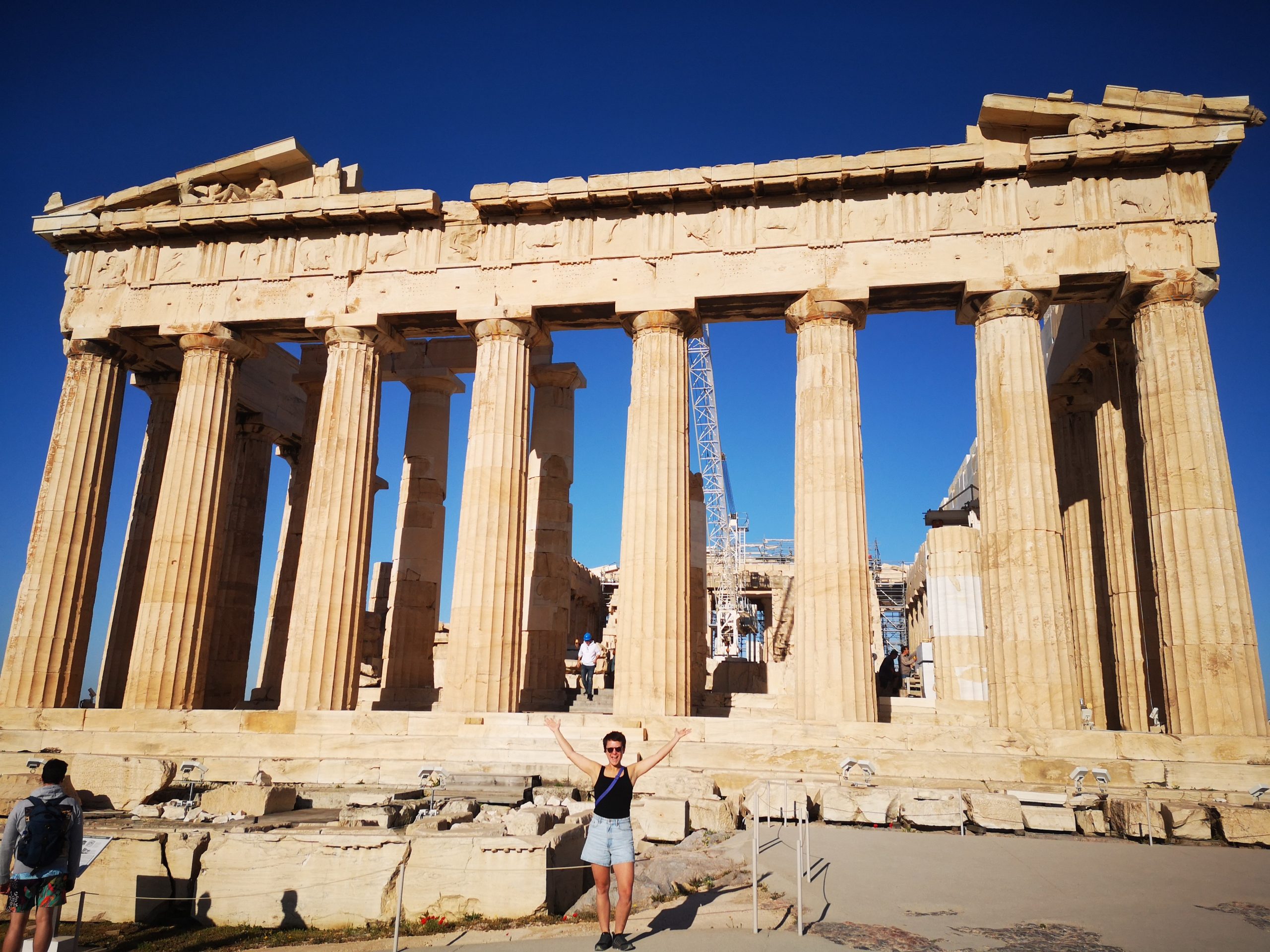
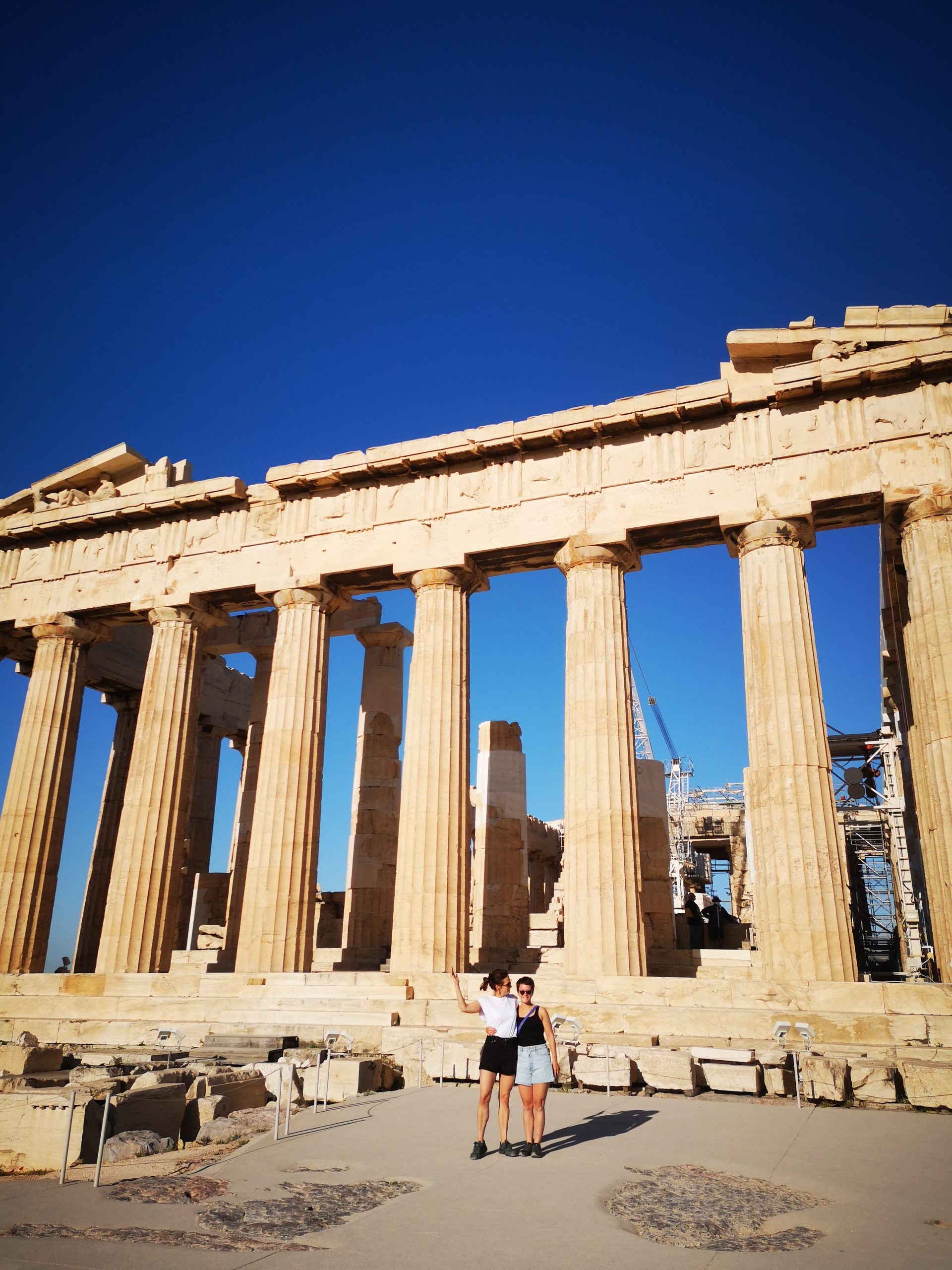
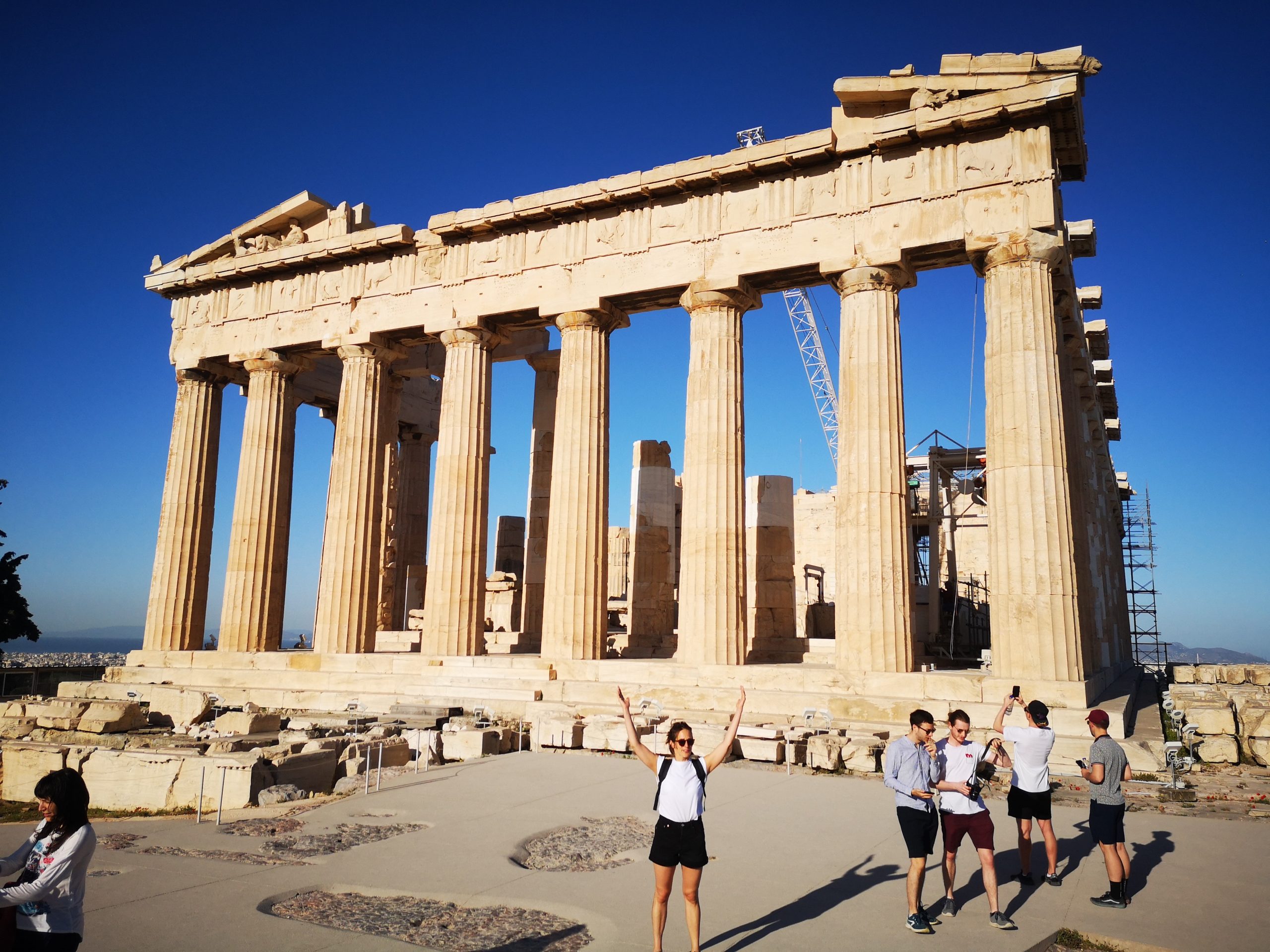
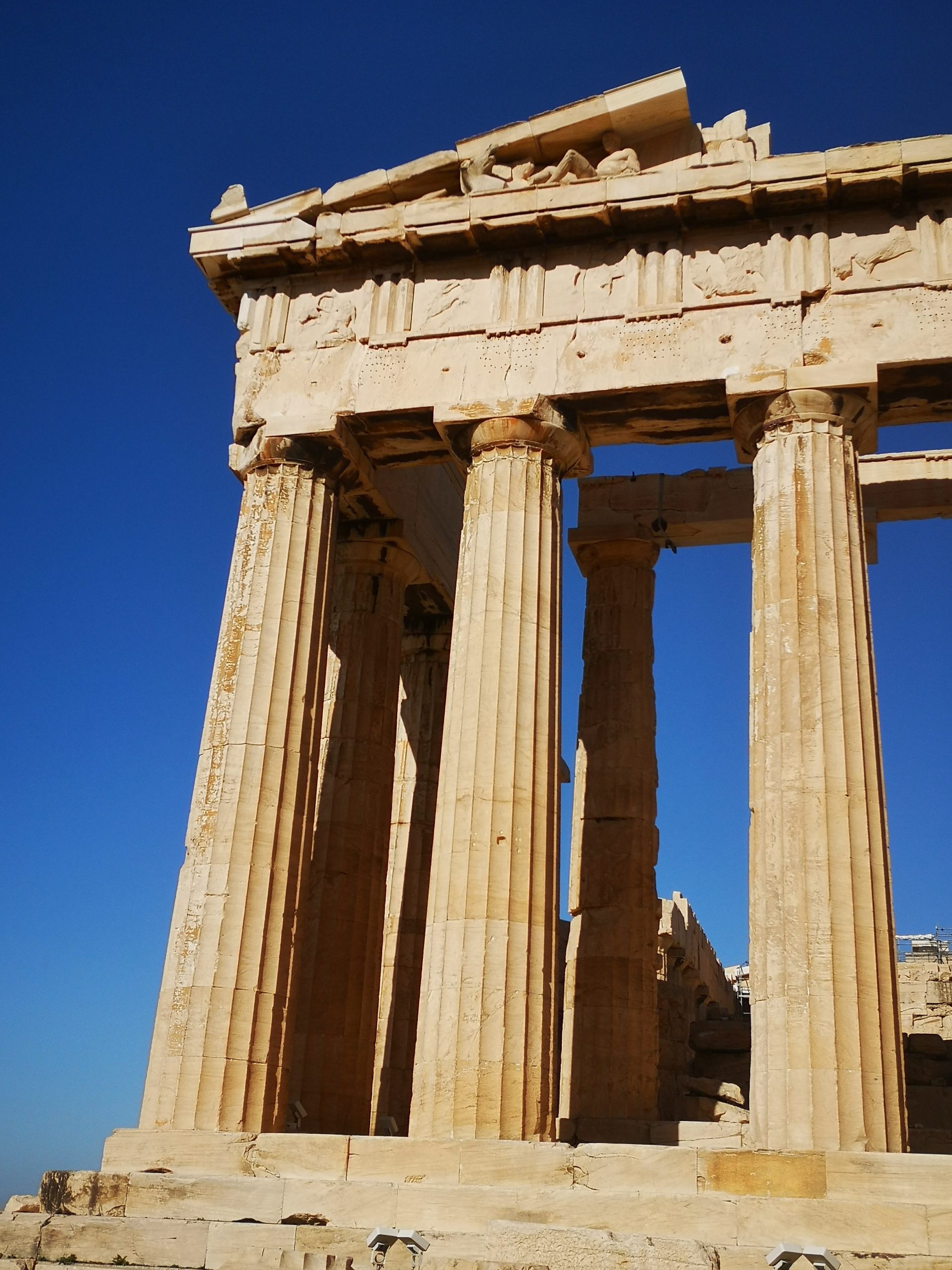
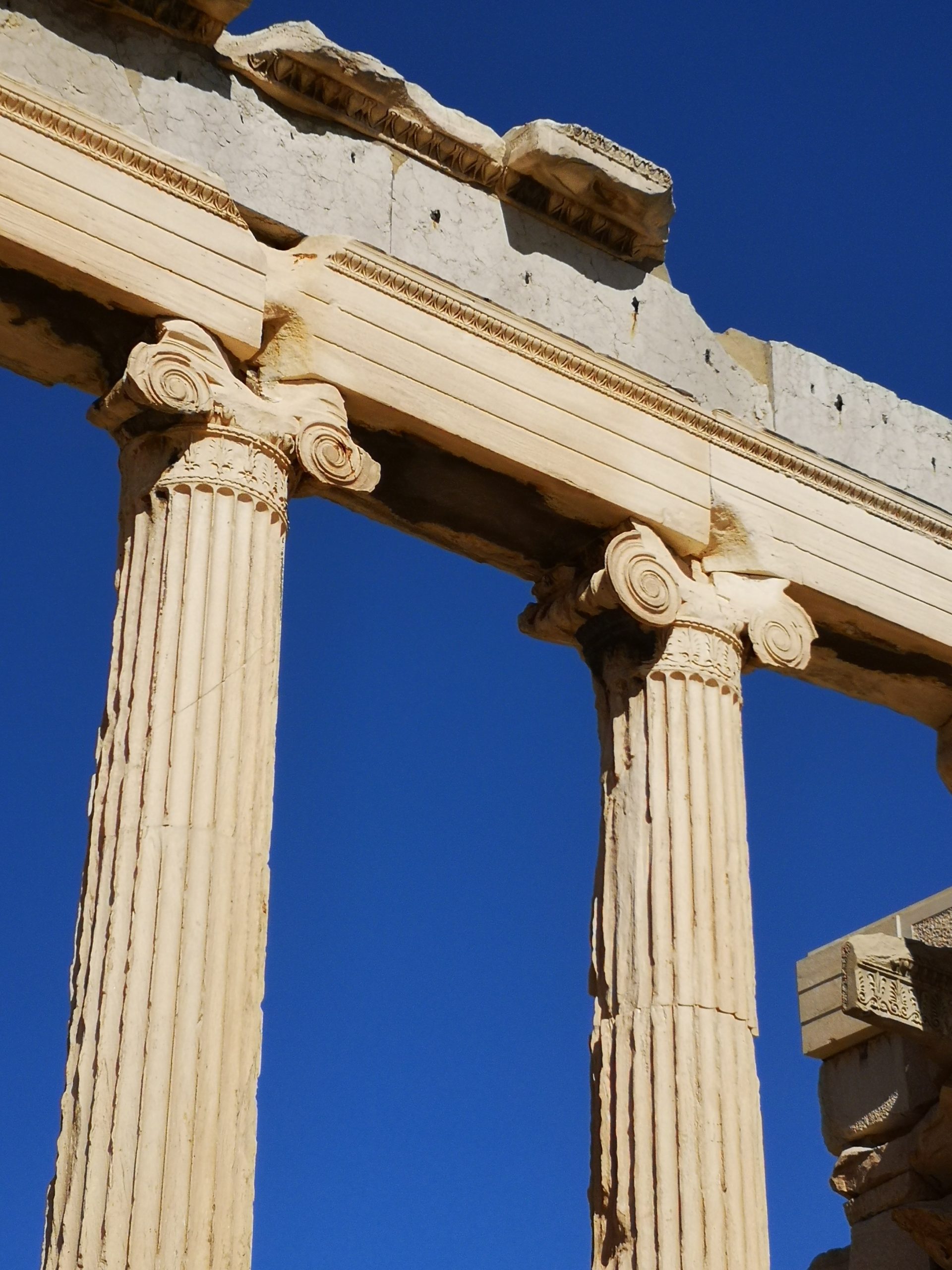
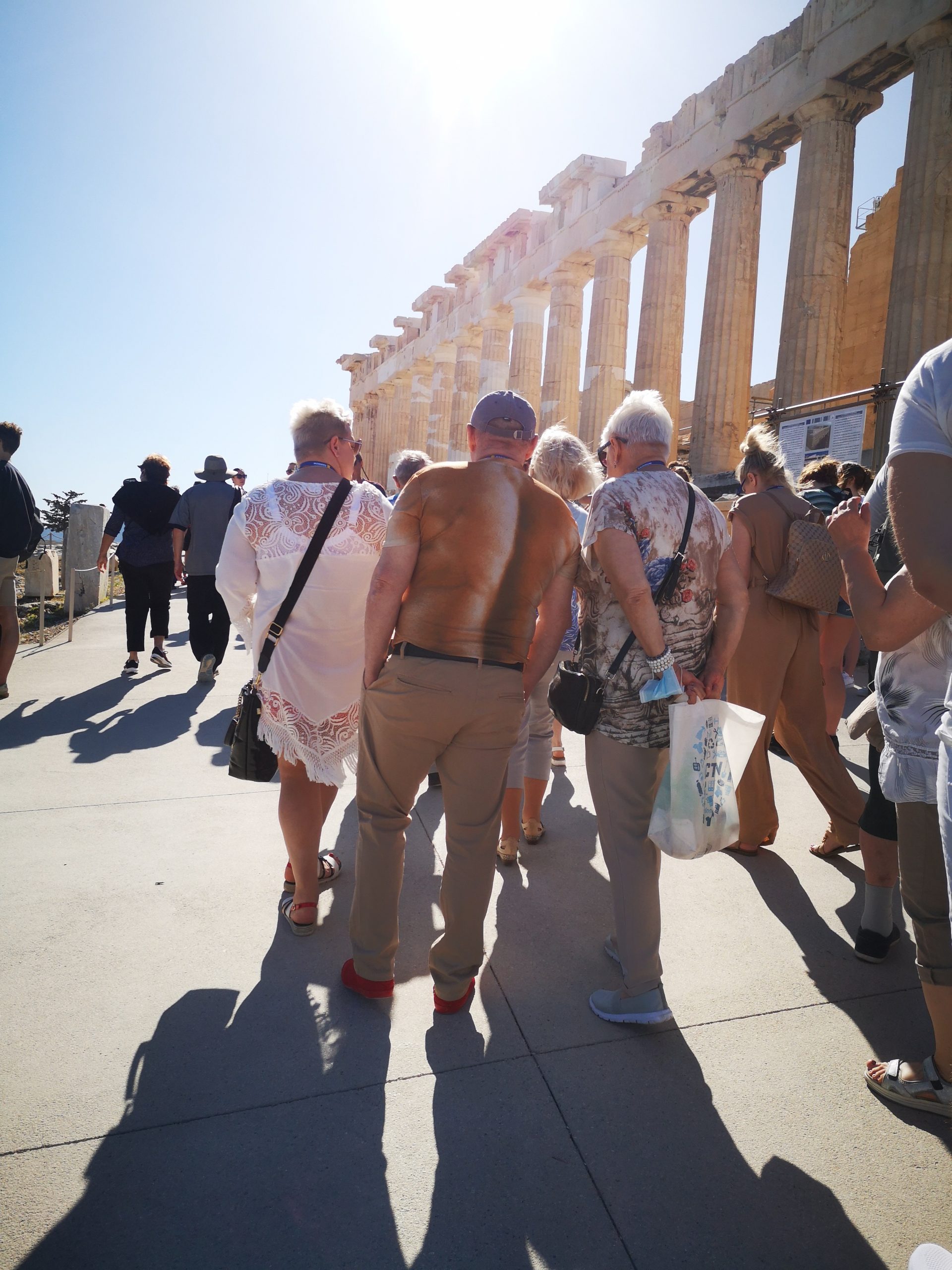
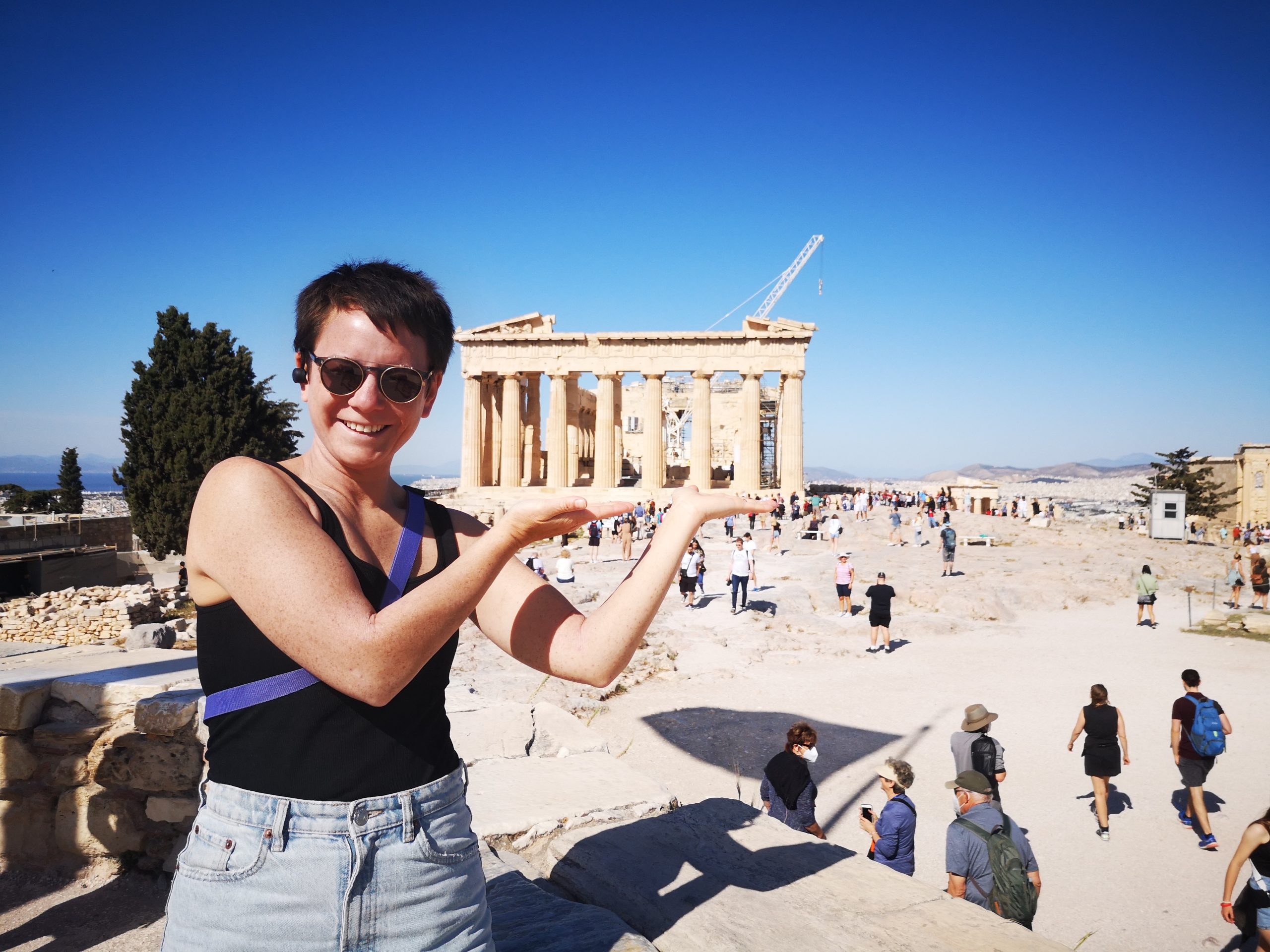
Many chunks and slabs of the Acropolis’ key buildings are not in Athens but in London due to Lord Elgin’s looting/custodial carriage between 1801-12 to the UK. Lord Elgin stated the then ruling Ottoman authorities (modern/independent Greece was formed in 1821) gave him permission to transport and be caretaker of these marbles, which he sold to the British Museum. The official paperwork to back this has never been found and therefore his/the UKs actions are as contentious today as they were then, 200 years ago. The debate has received more rigour of late, with Greece getting UNESCO involved, the Greek president imploring directly to Boris Johnson and with Italy pointedly returning a piece they have back to Athens. Until the marbles are returned to Athens, the debate will continue.
All the information placards around the Acropolis site is clear on their stance of Elgin and the British and many a tourist made snide comments about our fellow country upon reading them. This entitlement or at least perceived entitlement of the British has cropped up on multiple occasions on our travels……
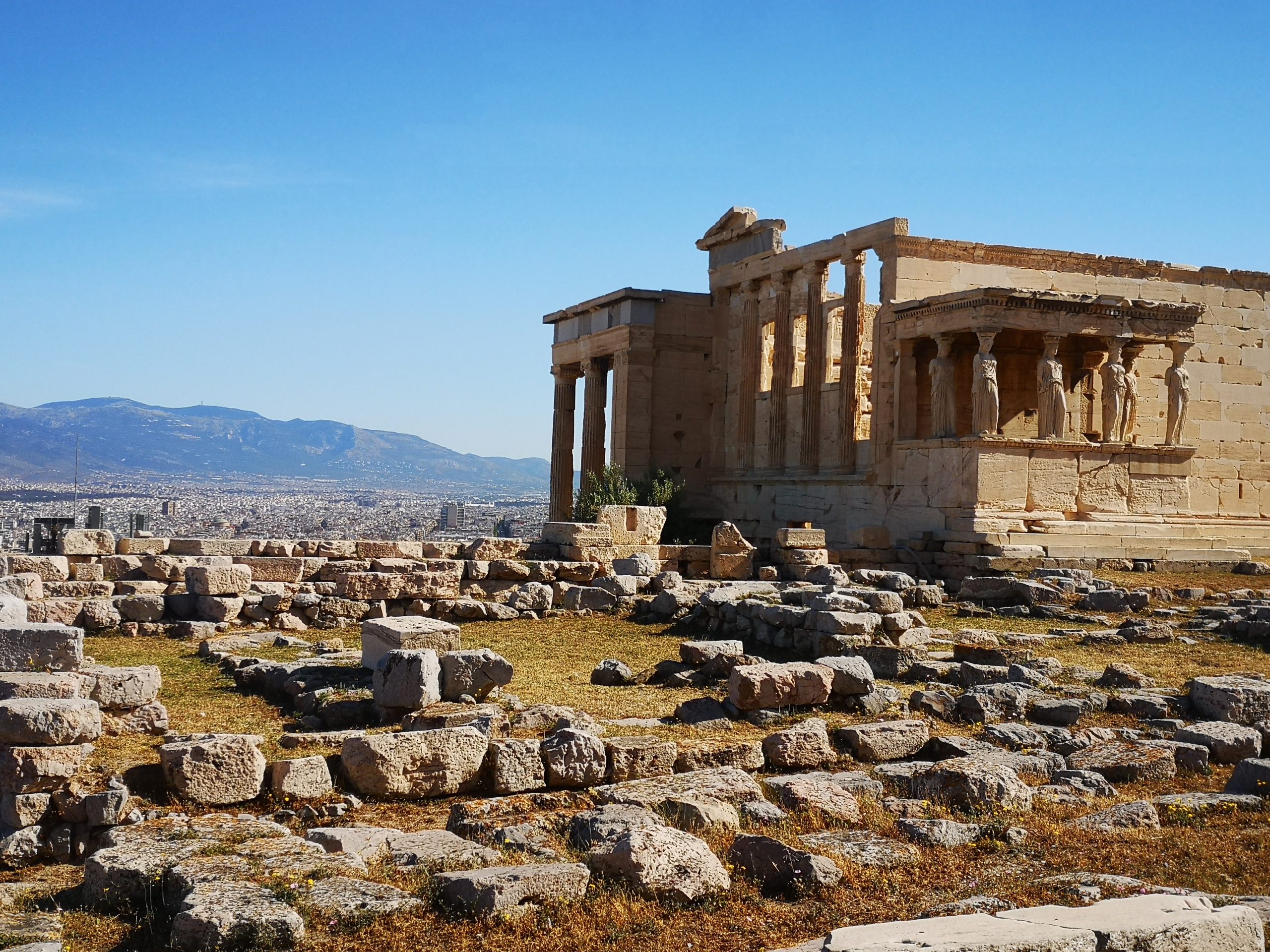
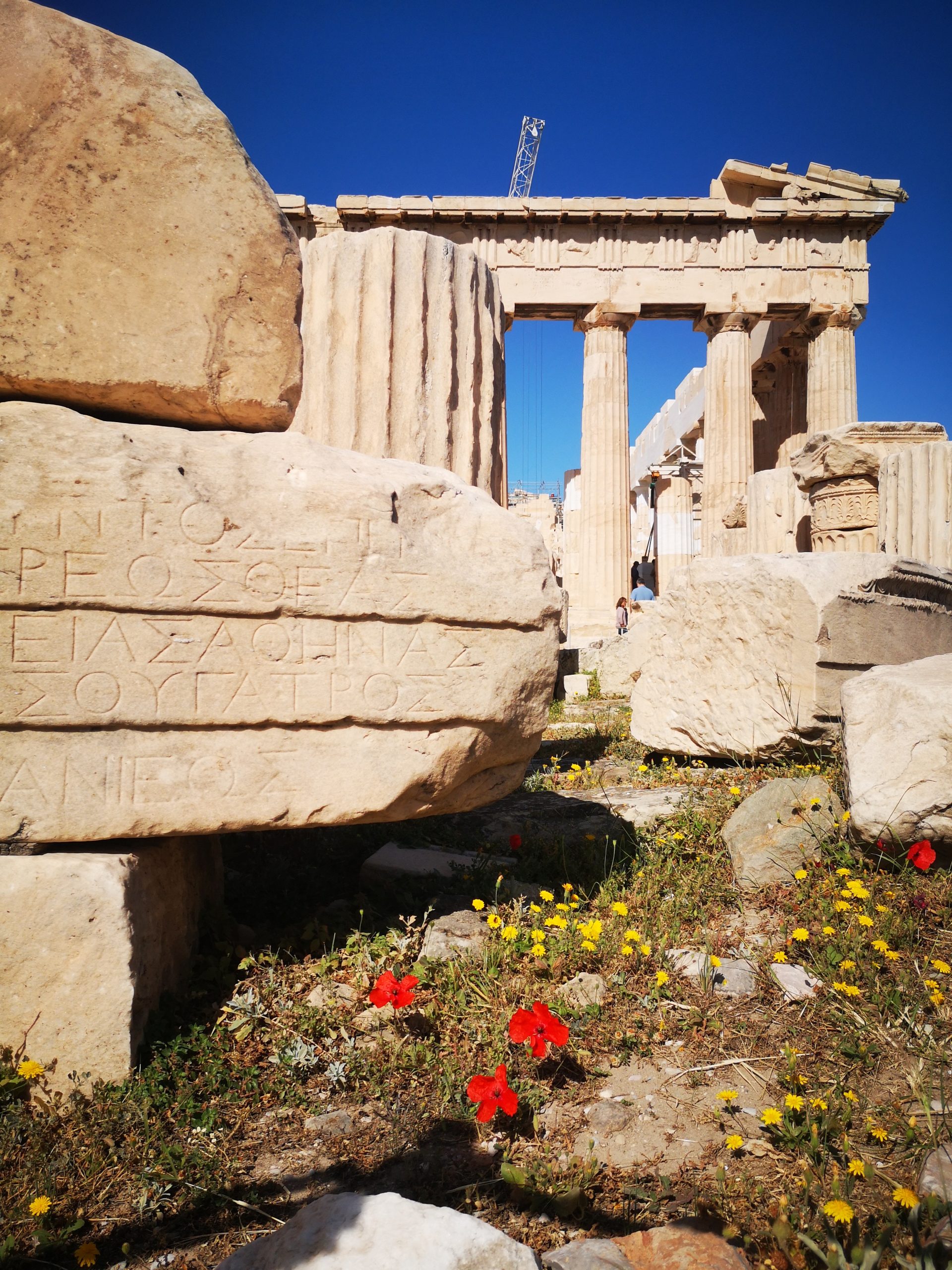
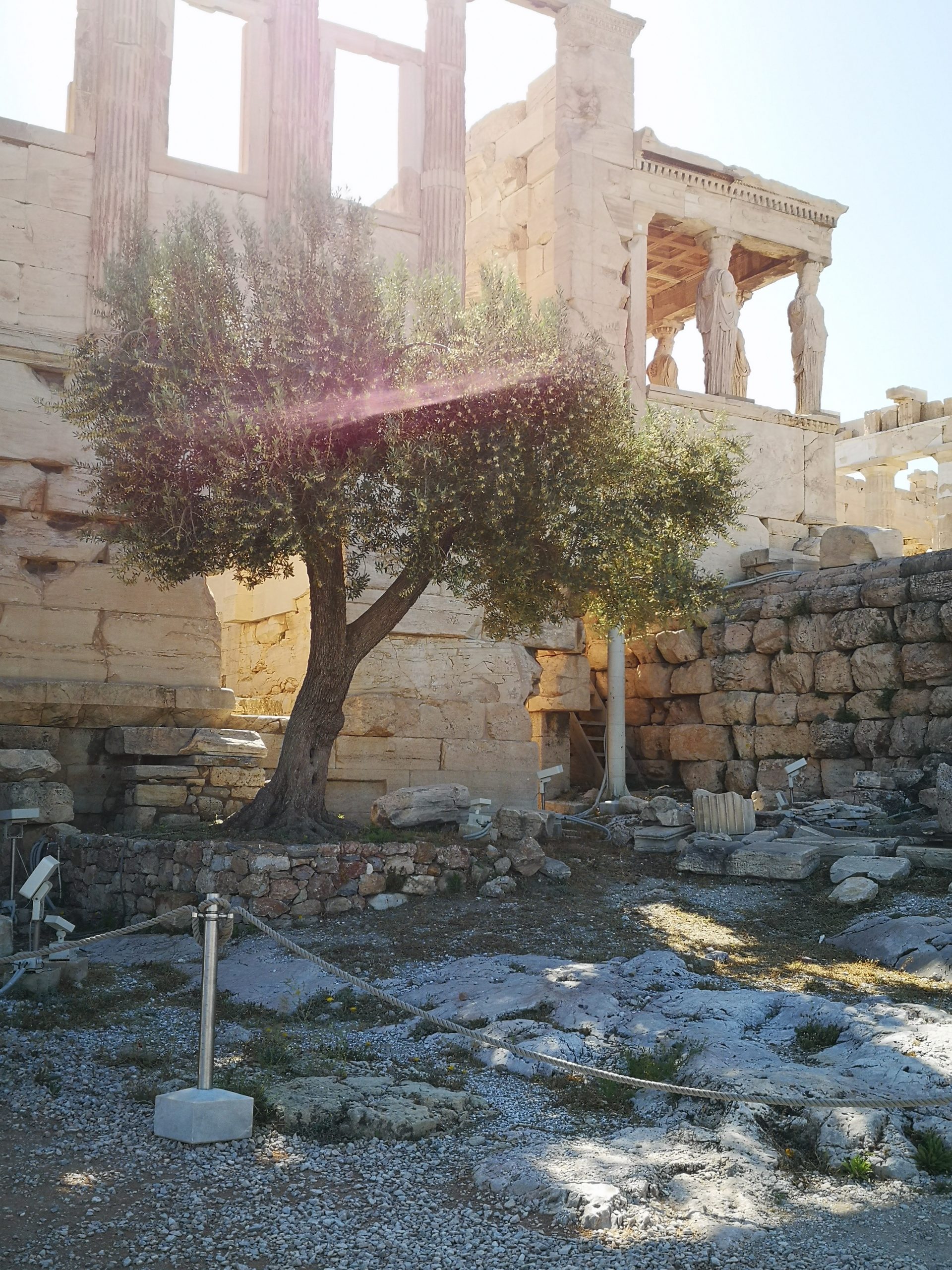
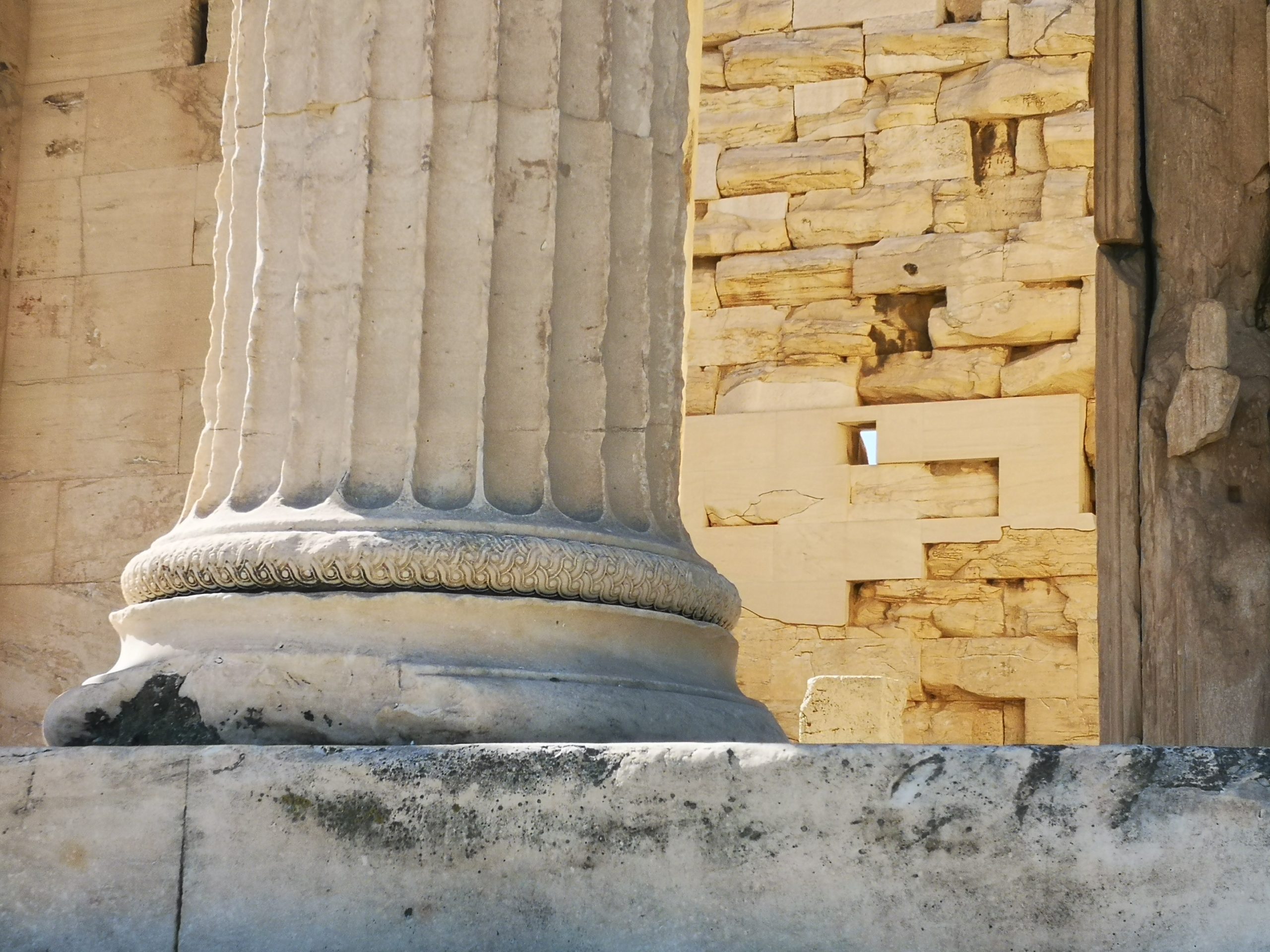
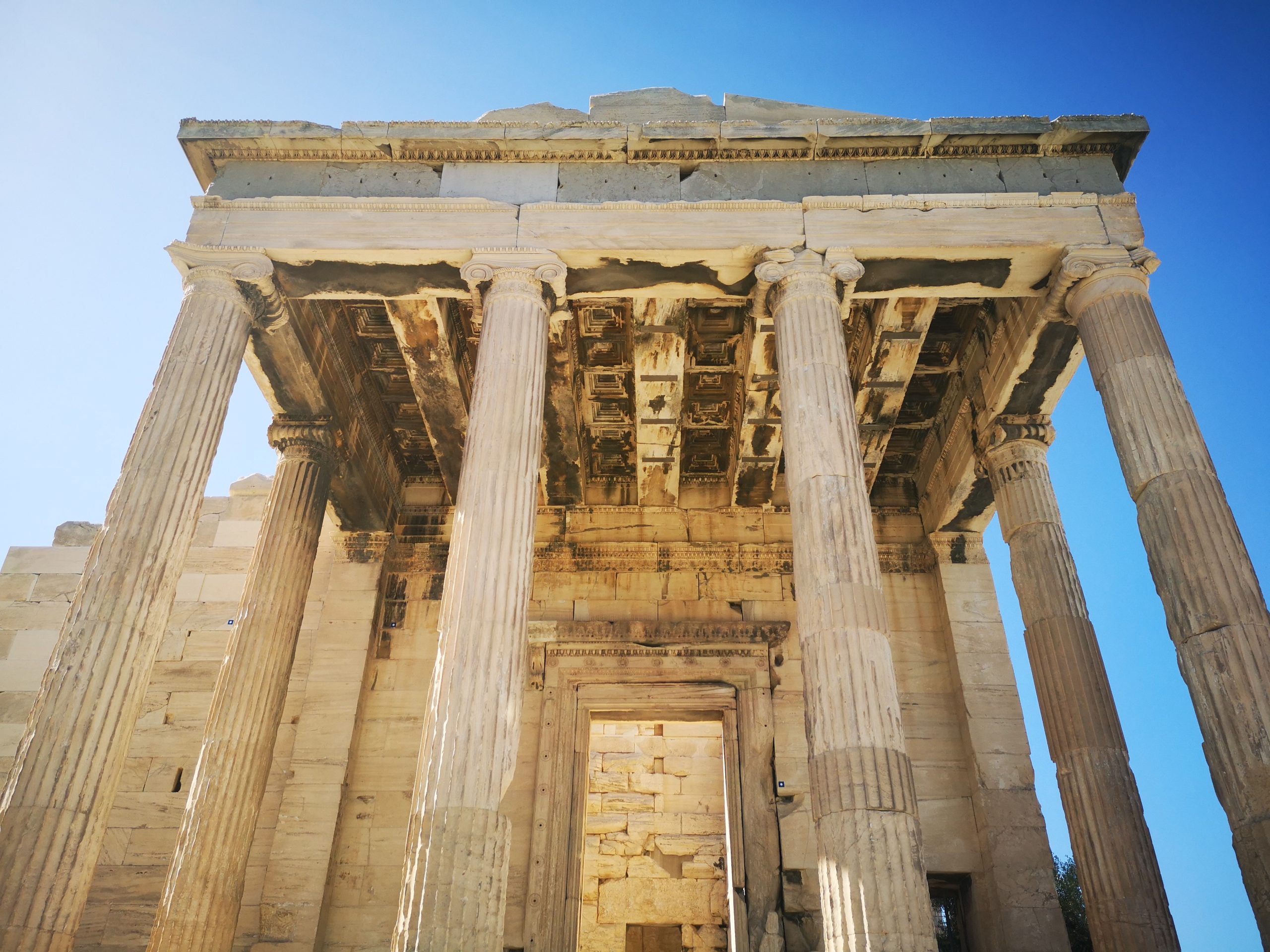
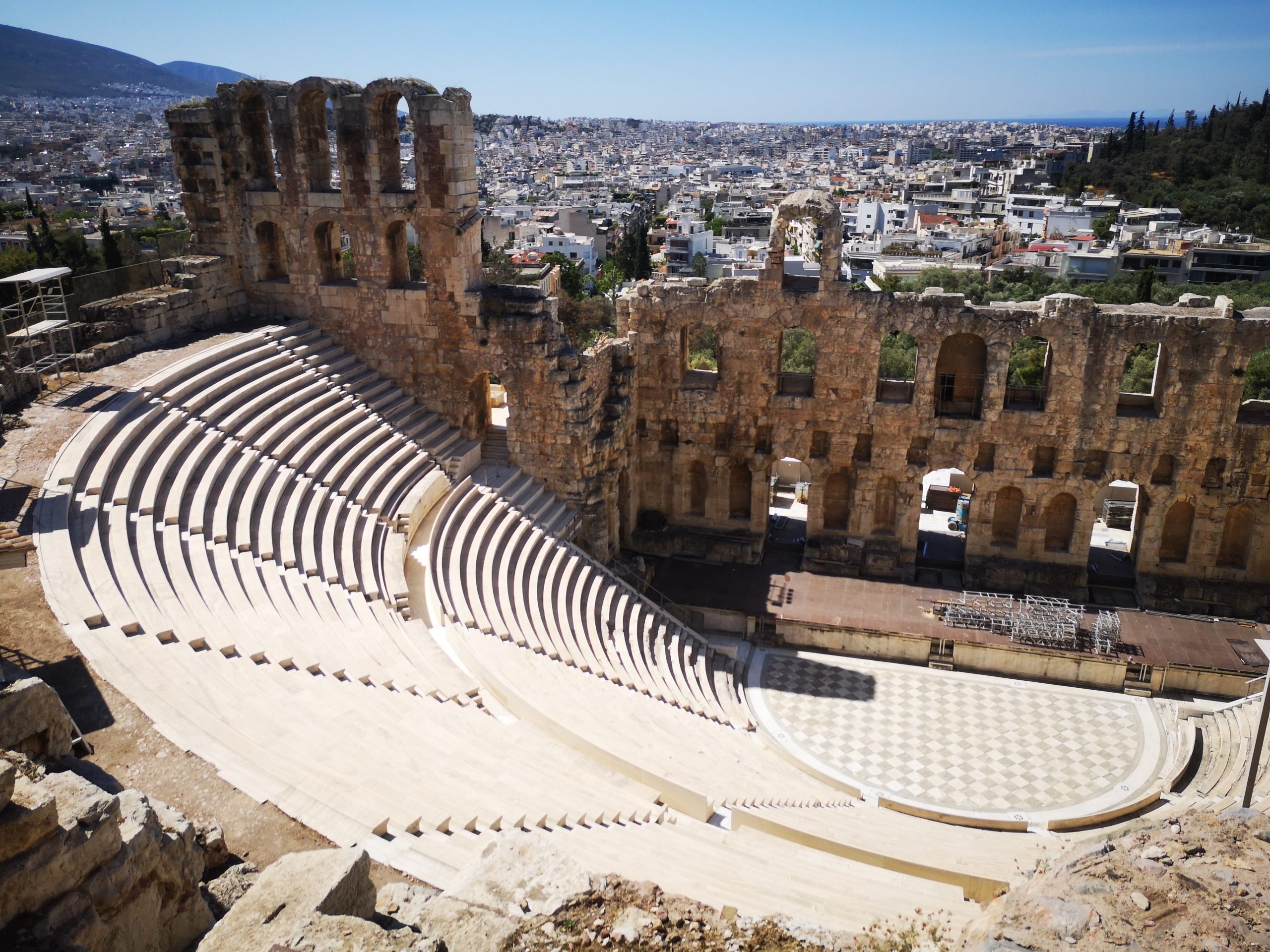


As the crowds swarmed and the temperature soared we felt we’d had our fill of ruins, so gladly made our decent down the Acropolis and swiftly bought ourselves some much needed shady, yet snazzy, tourist hats.
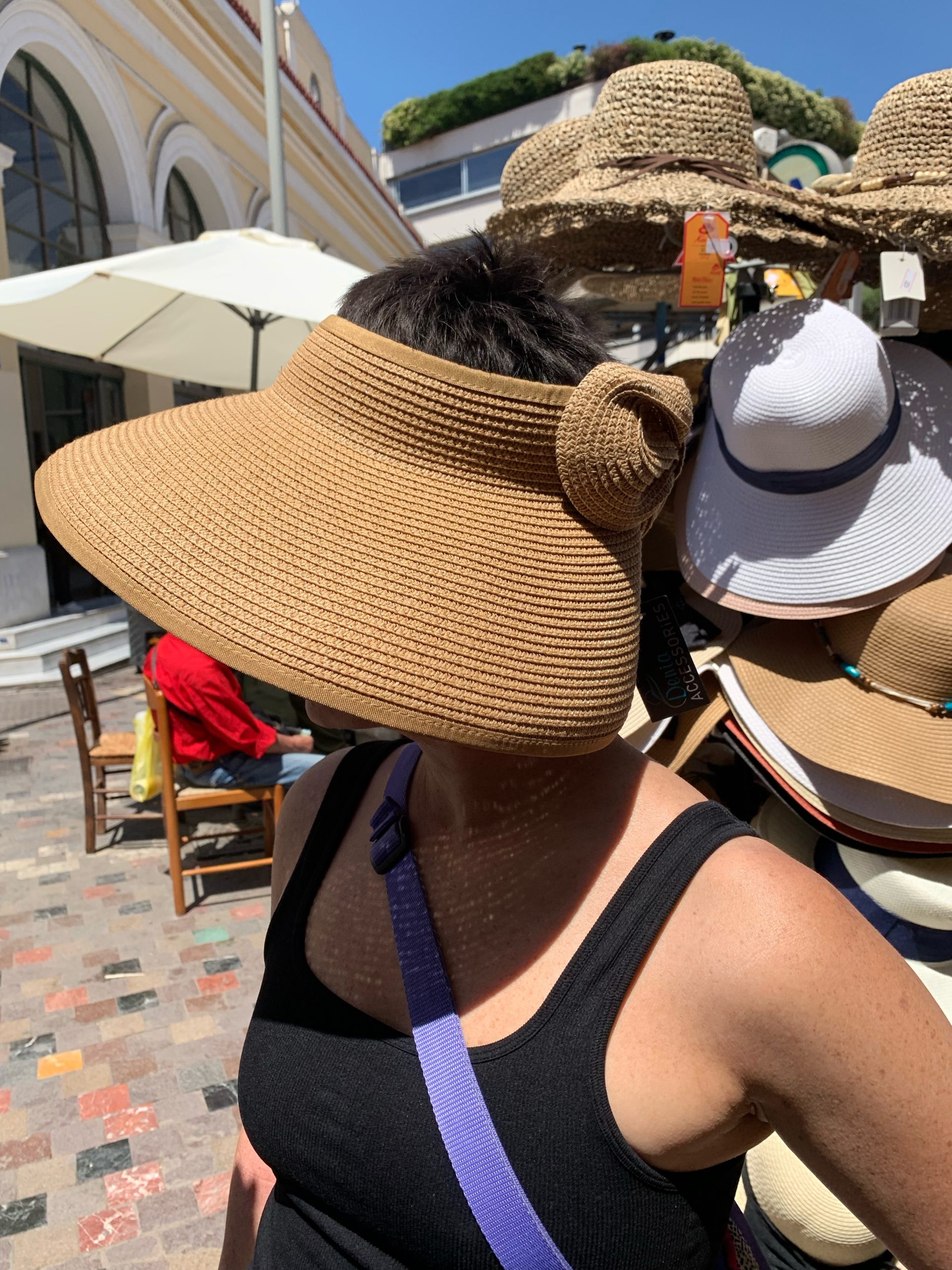
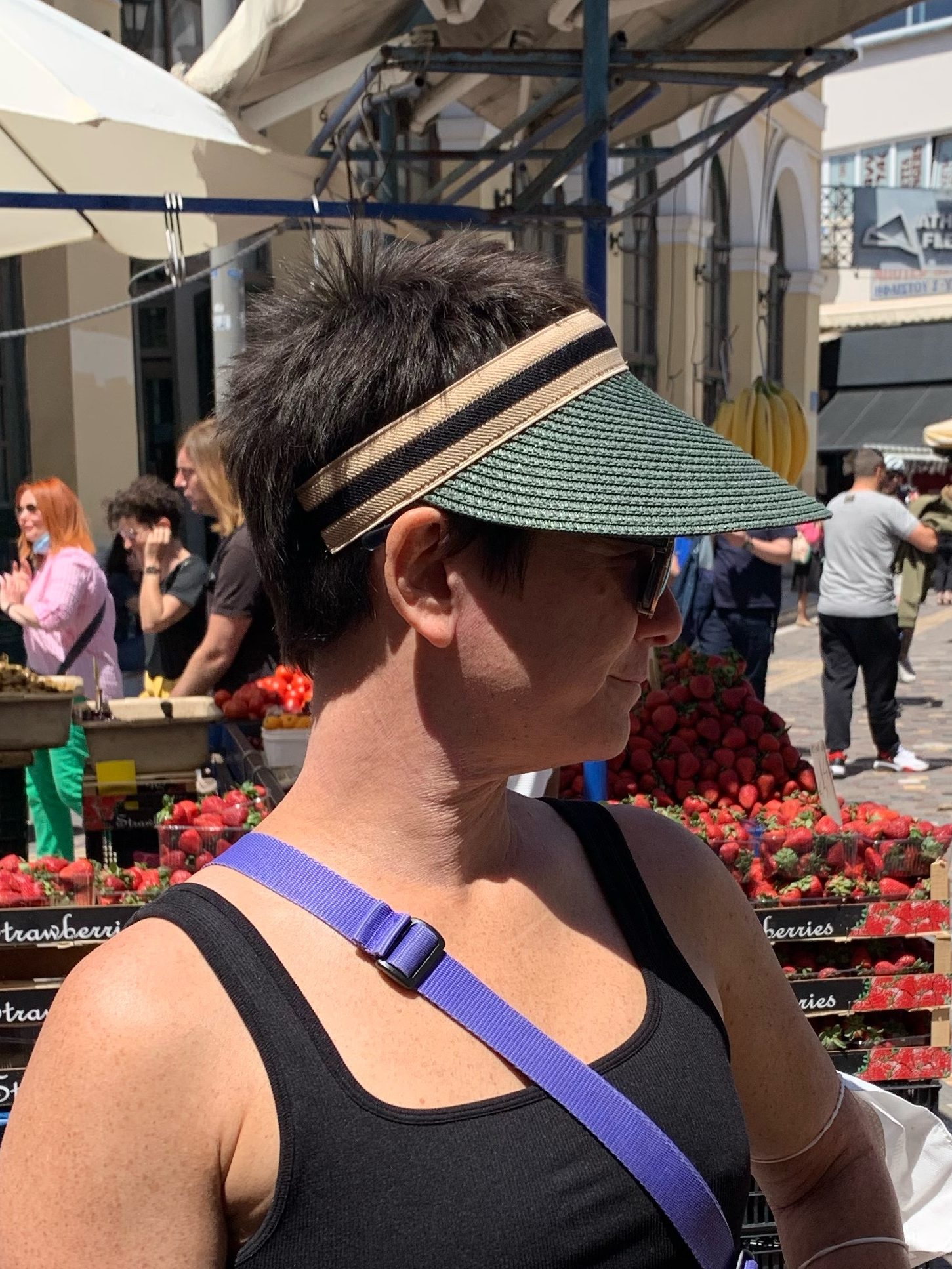
Nestled just off the Central market, is a floor hatch, that leads you down steep stone steps to a cavernous restaurant called Diporto. A simple room with a tiny grill, flanked by wine barrels, slabs of marble and decor from its 1887 inception – Diporto was the setting for Ana’s perfect meal – one that boarded on the hysterical, as tears, laughter and general mania all featured over the course of this lunch (all from Ana).
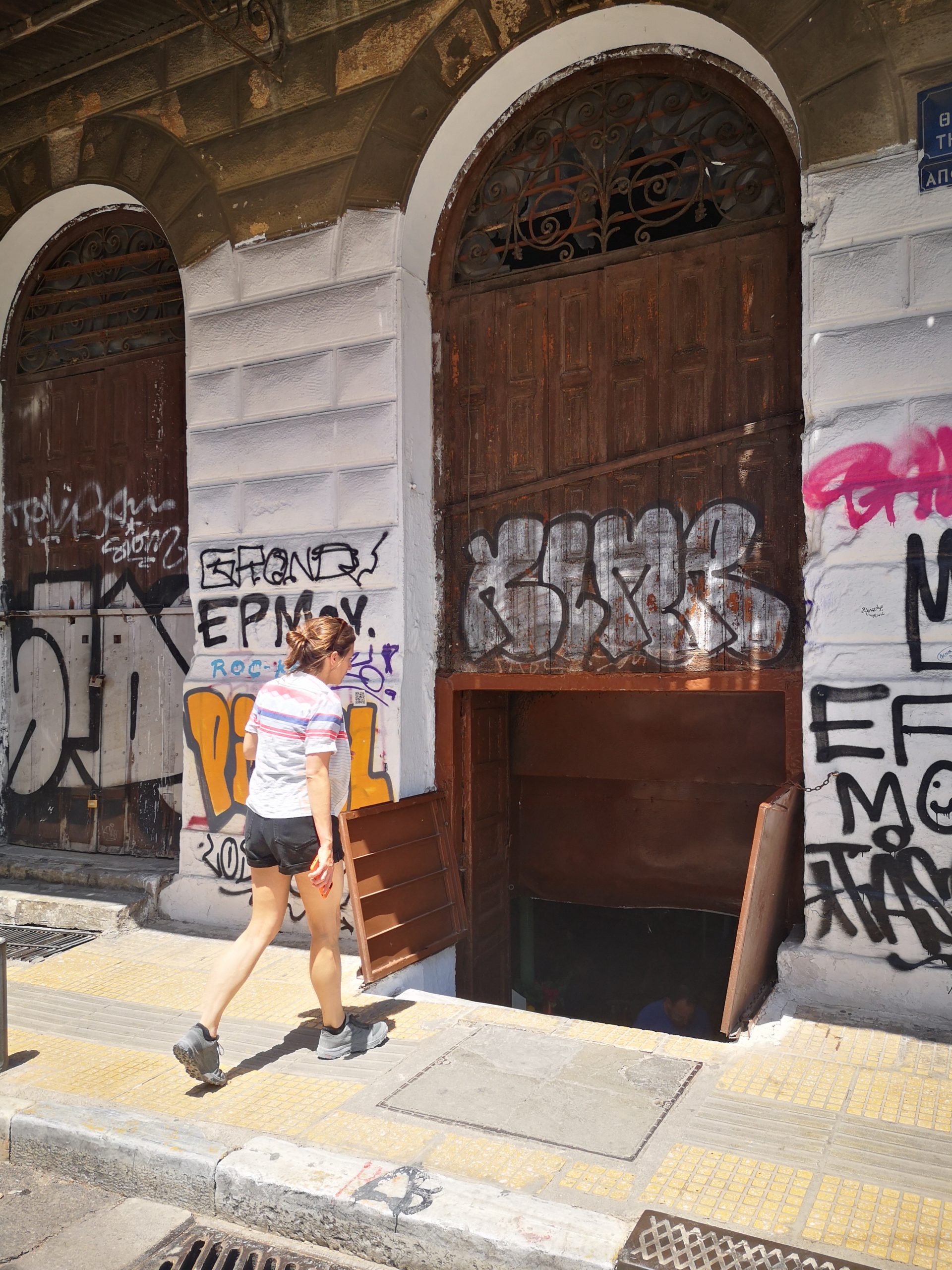
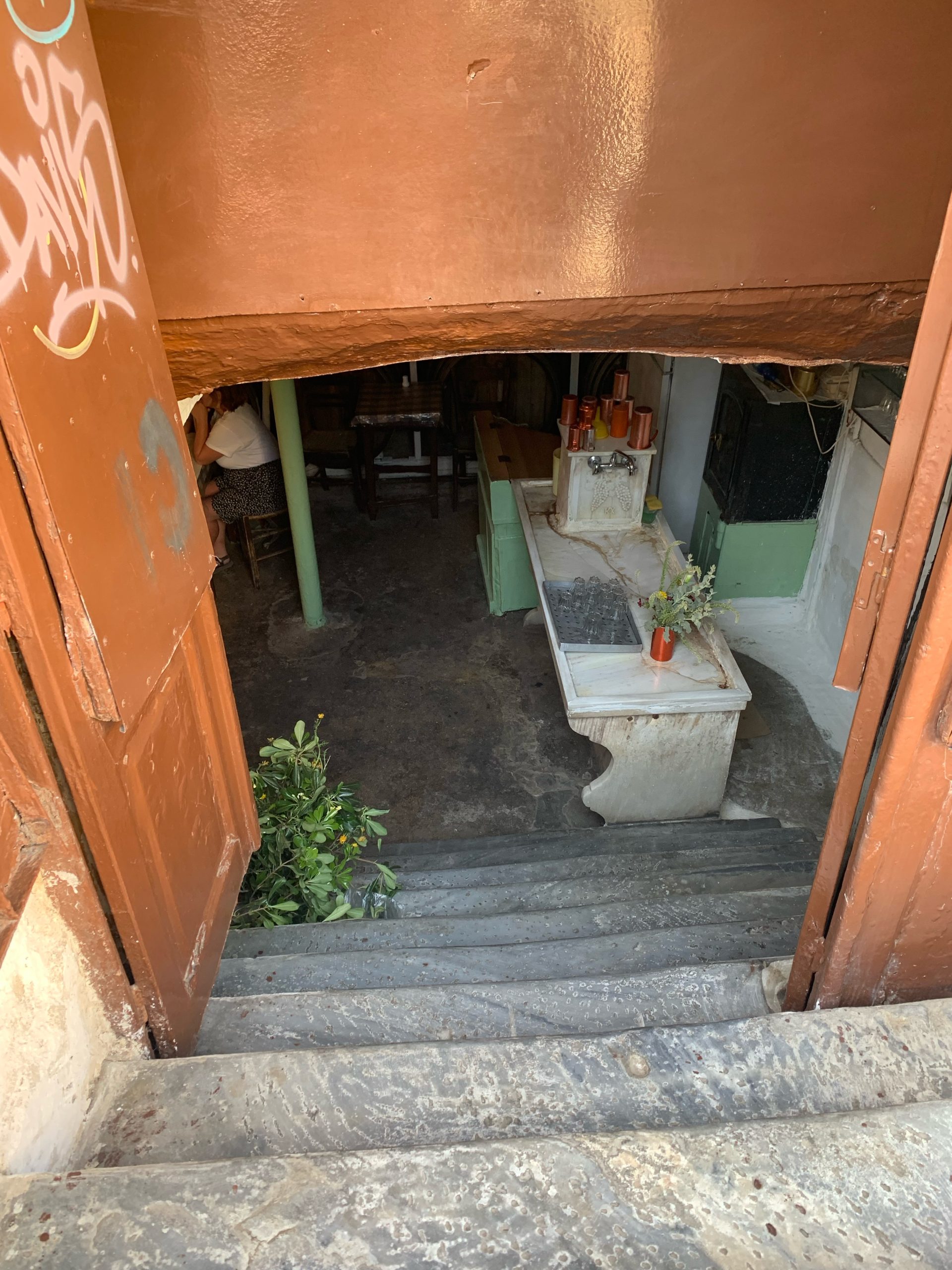
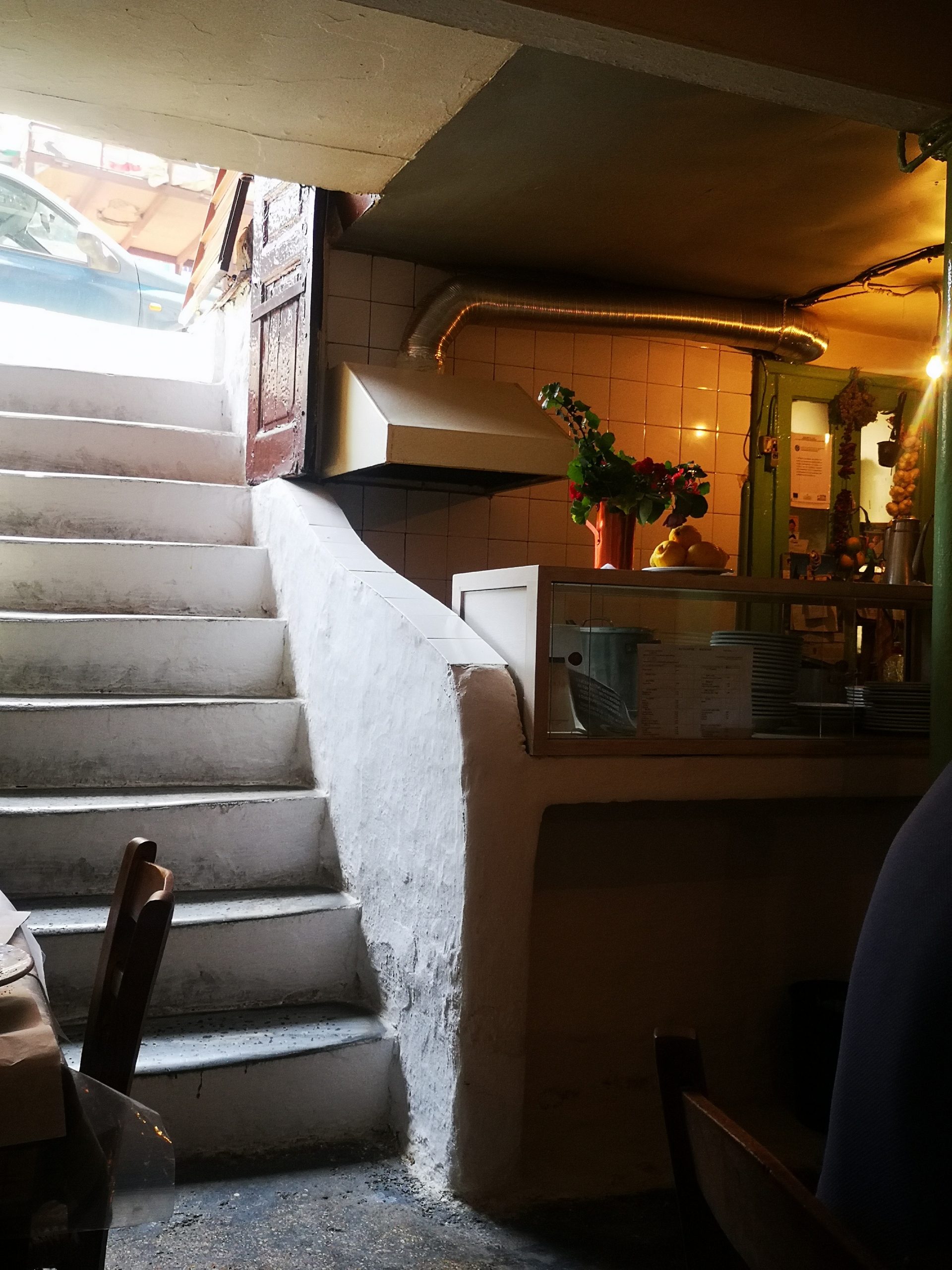
Within a minute of sitting down and not an utterance, you had food and wine in front of you, almost chucked, but not quite. Served with assured and confident hospitality – this place was experienced in knowing what people want, which luckily was exactly what they served.
The food was so simple, and so delicious. Tender and sweet chickpeas, swimming in broth; salty grilled sardines; crisp, chunky tomato and fennel salad and silky broad bean smoosh.

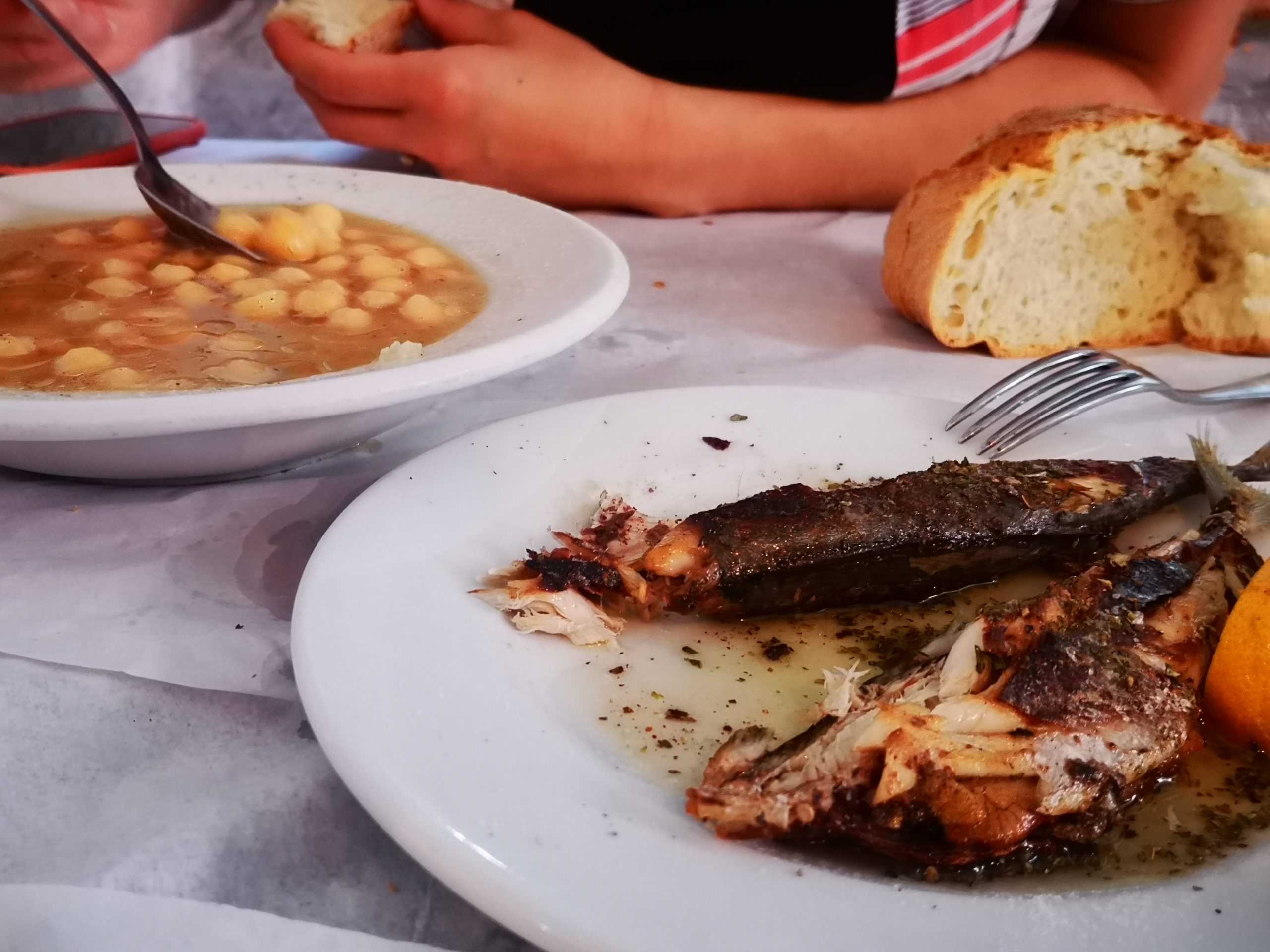
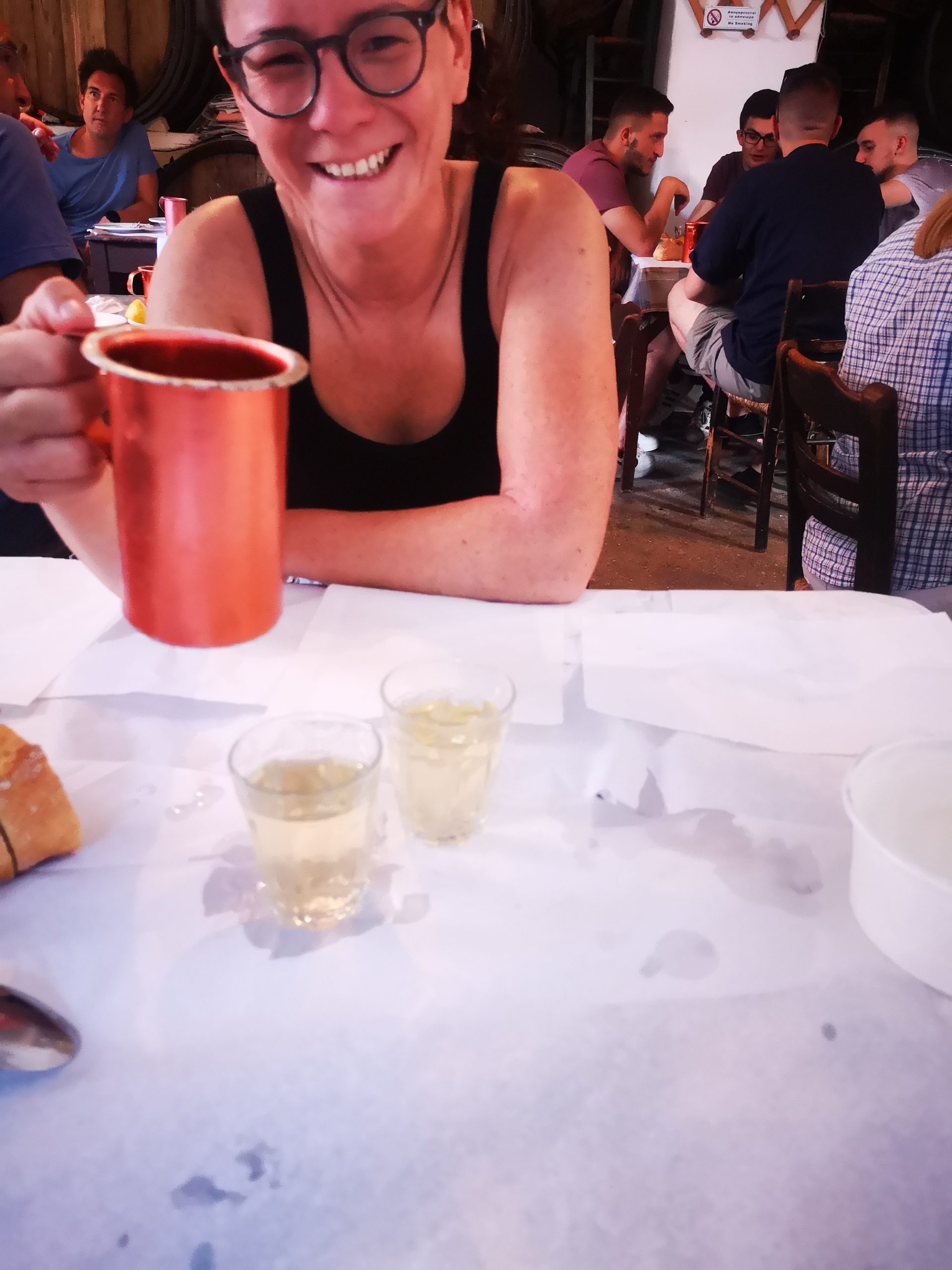
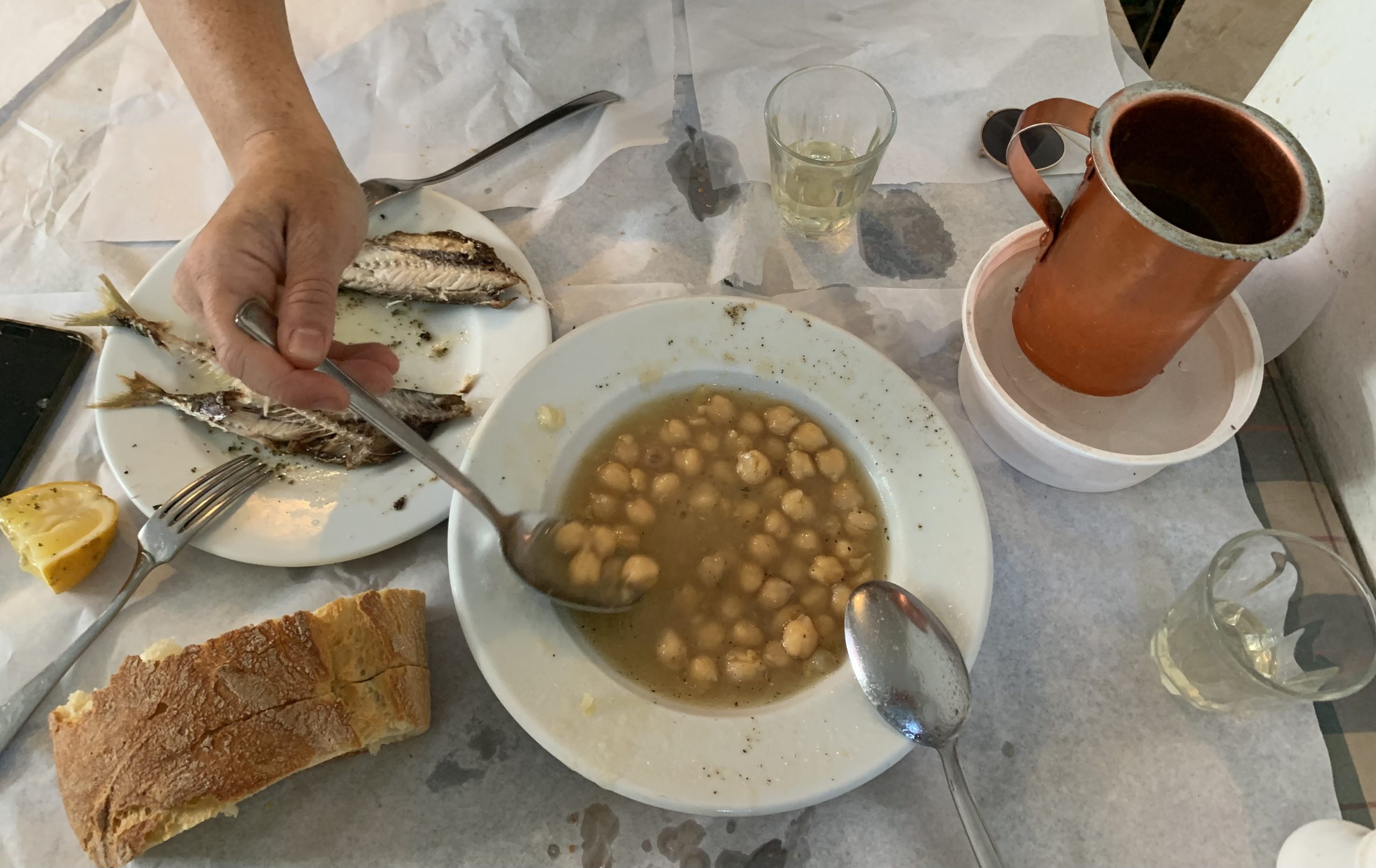
Ana lost in reverence and with darting eyes soaking up the whole scene, was clearly very happy. Around this time an absentminded moment led to a piece of (delicious) bread to be used as a napkin on her oil, juice slicked face before also being devoured. A conscious decision to ensure no flavours were wasted and in the absence of an actual napkin. Caught red handed by a slightly aghast Pippa, led to a general collapse of demeanour and loss of control of emotions from Ana; all very happy ones and no remorse, but pride at her ingenuity.
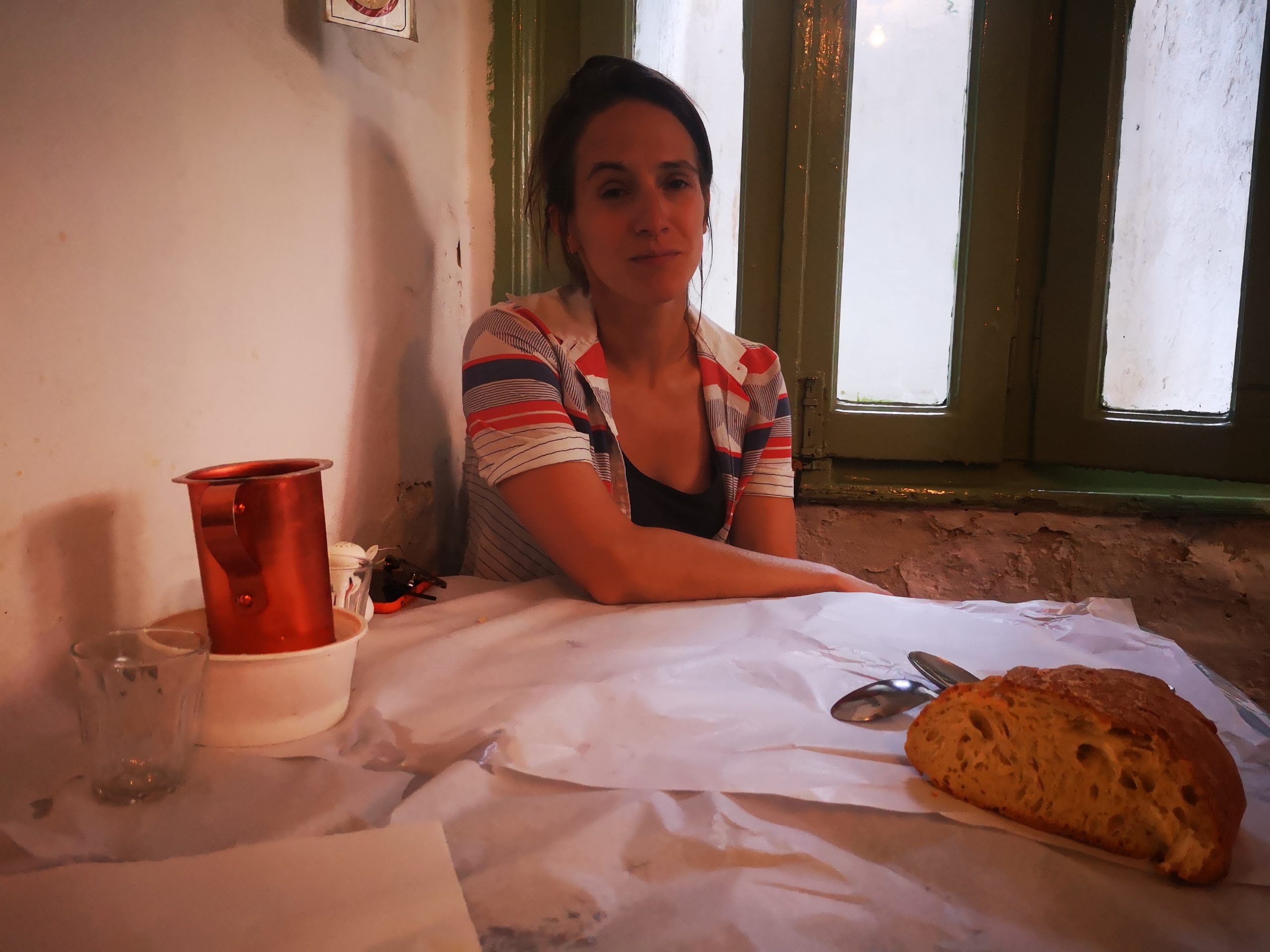
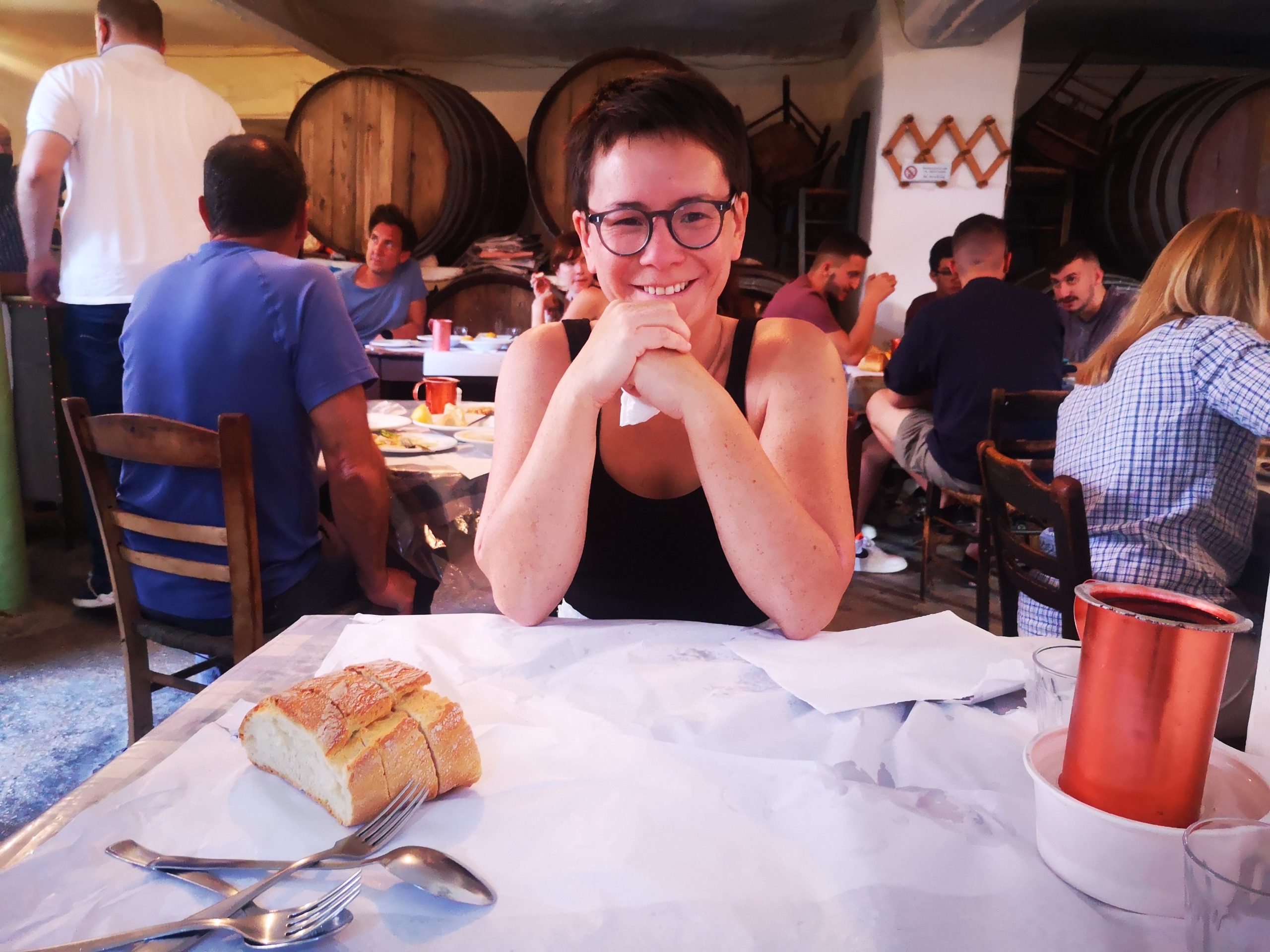
Overhearing some conversations and witnessing someone set up a tripod, made it clear that this institution has been infiltrated by the drones of social media foodies in the recent years. The dislike was palpable from the owners, but presumably conflicting for them, as there was never an empty seat. Our pure intentions were apparent, so we seem to get the more authentic hospitality than our neighbours and felt their frustrations. No doubt this place will continue to serve as it has for the last 150 years – as they please and as they like it, just with slightly more distain for some customers than others.
I guess it is no surprise that the the forefathers of hospitality are very good at hospitality. We thought the Turkish were good, but the Greeks hold a couple of aces up their sleeves. One, they love a complementary introduction/goodbye shot of raki, served alongside a tasty treat and two, they love to give you the bill and then strike through the price, either simply rounding it down or applying a hefty, inexplicable reduction. Both ’aces’ we relished and have noted for any future ventures.


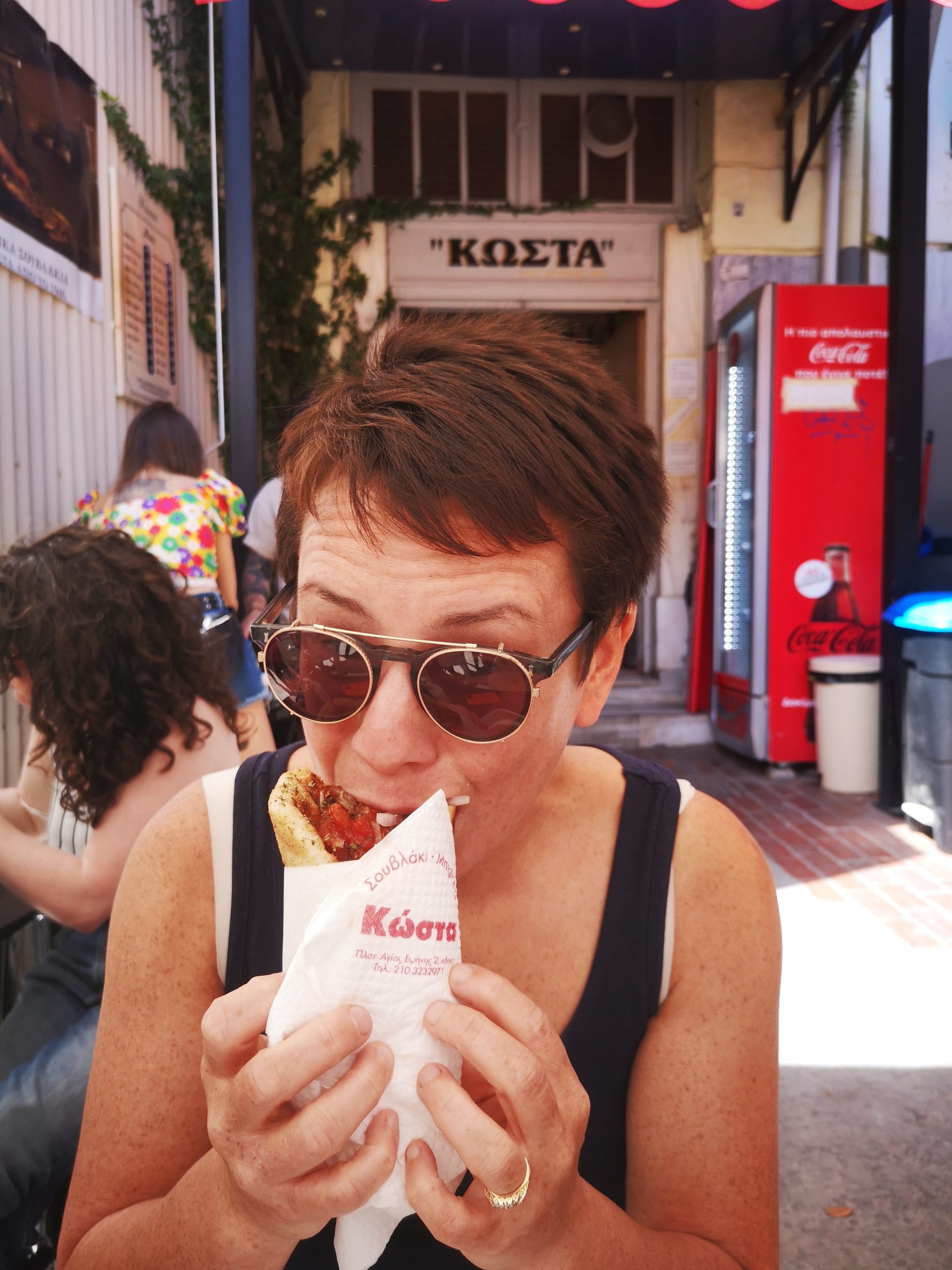
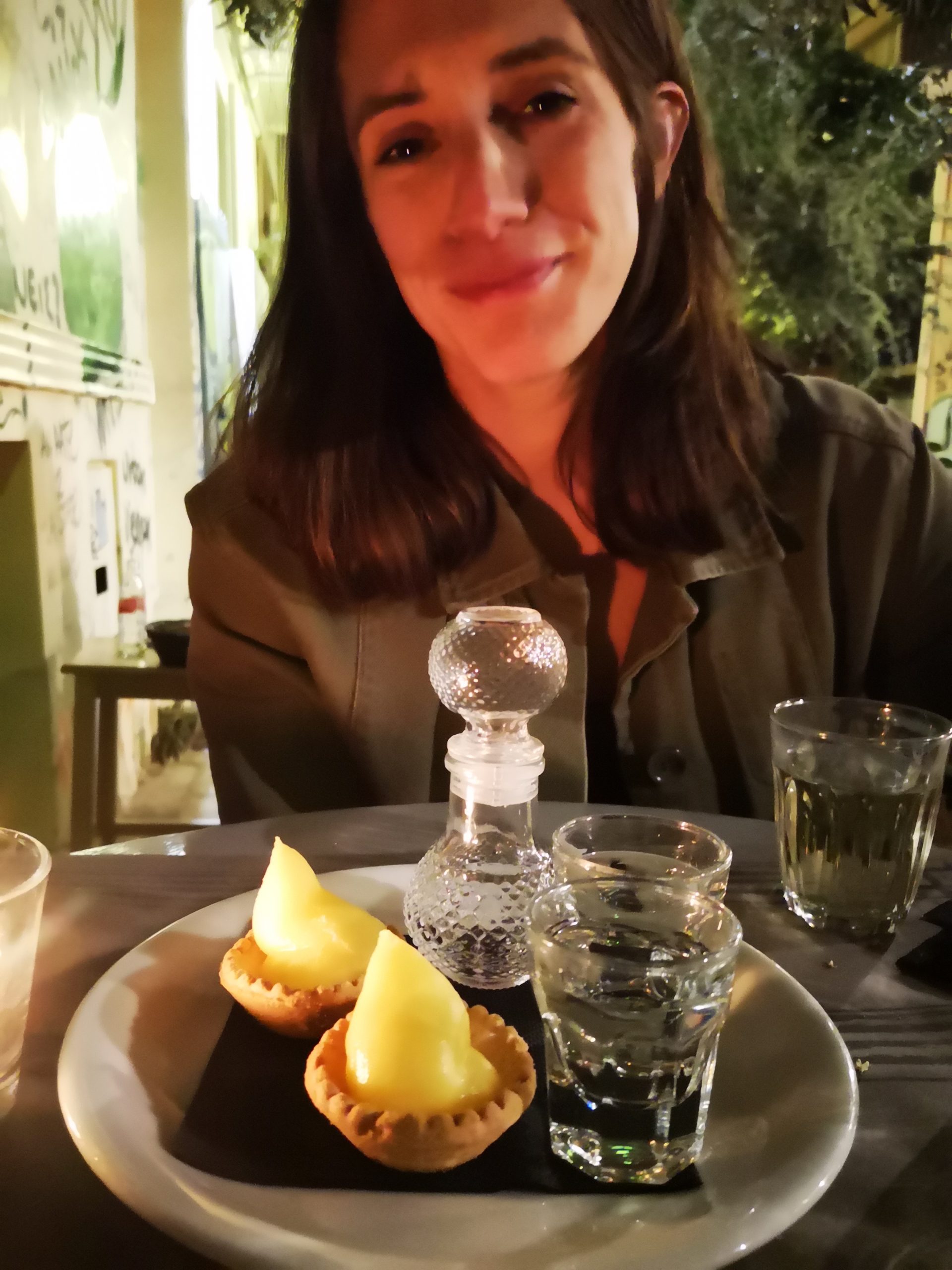

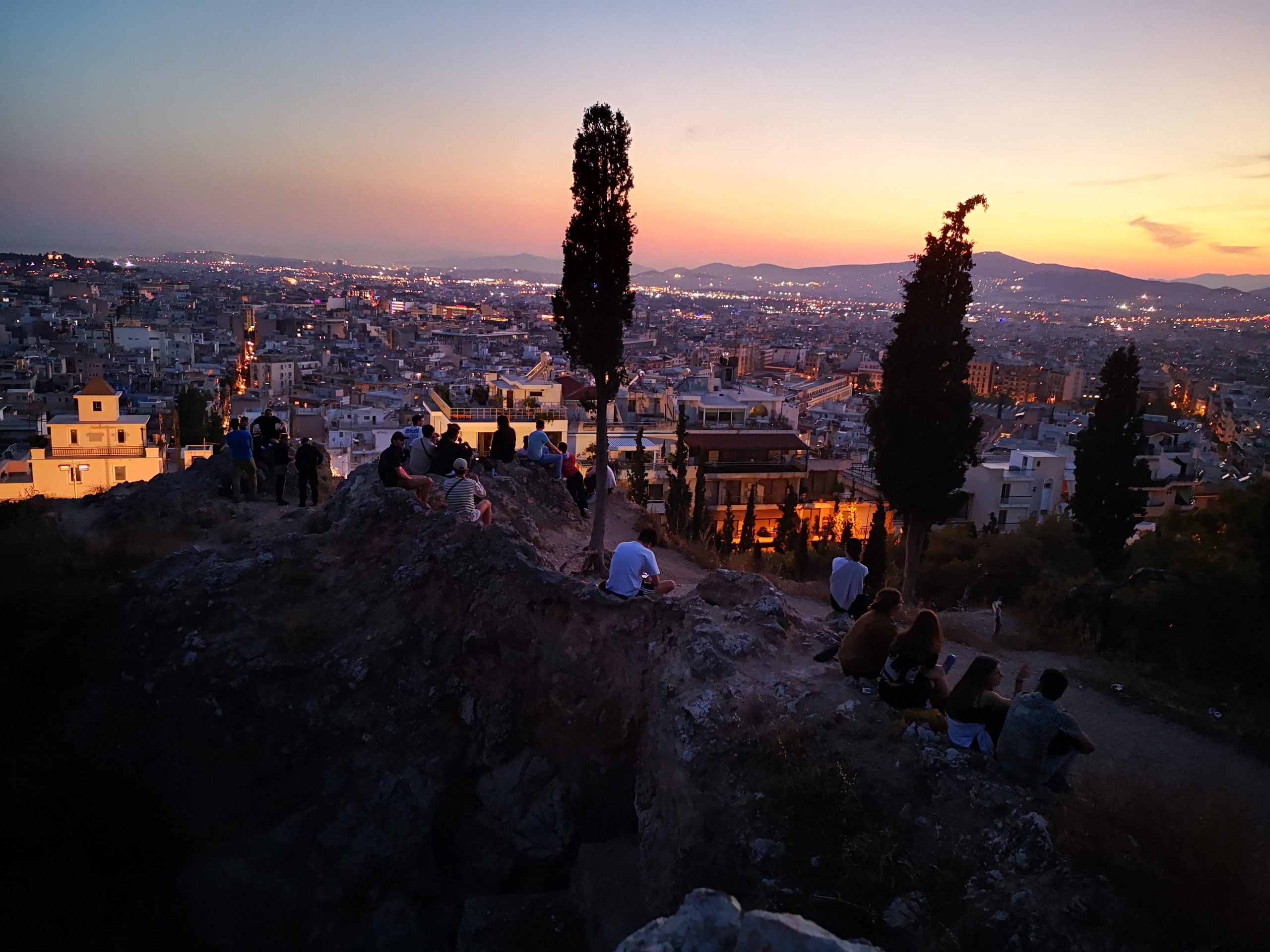
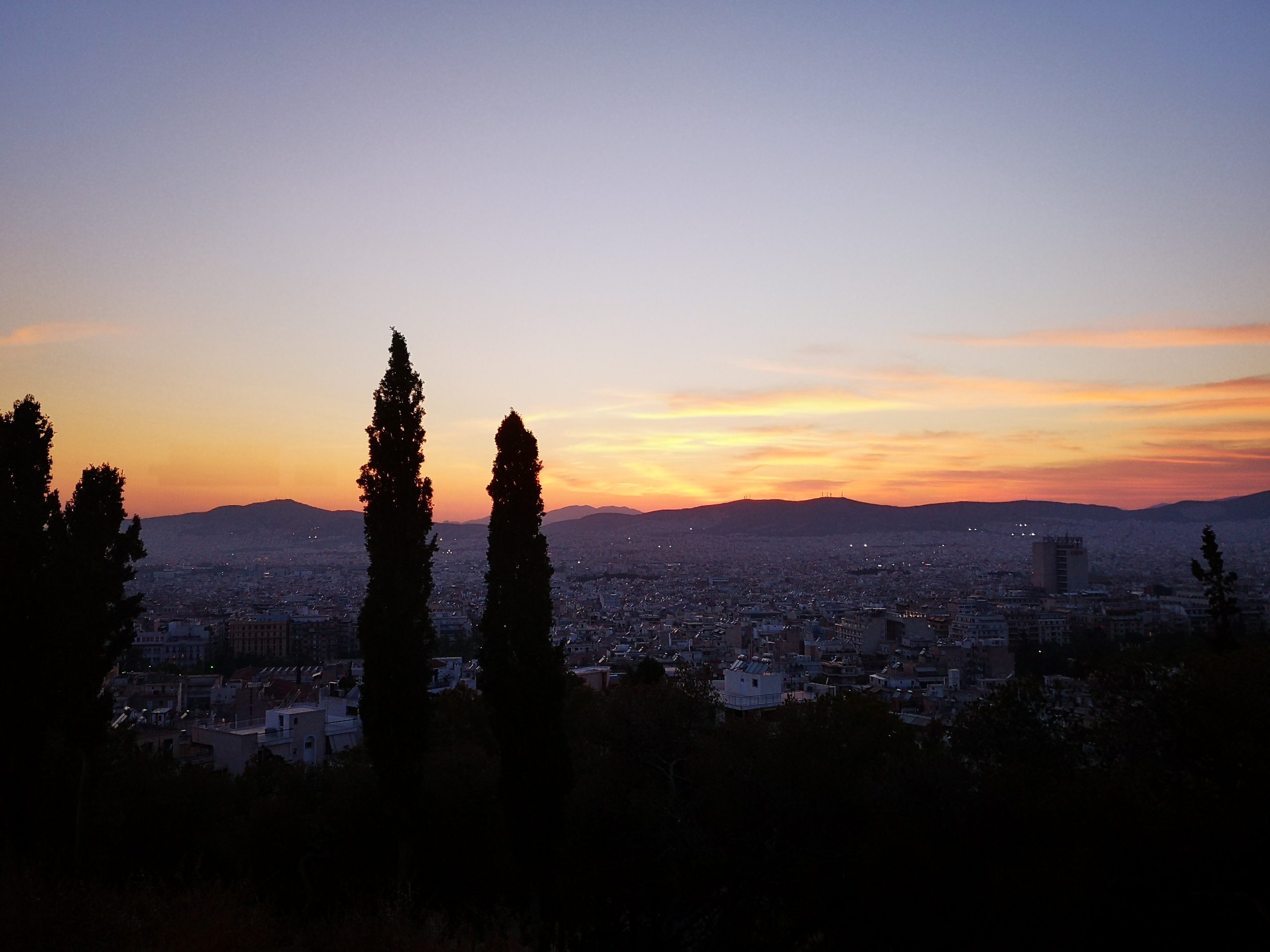
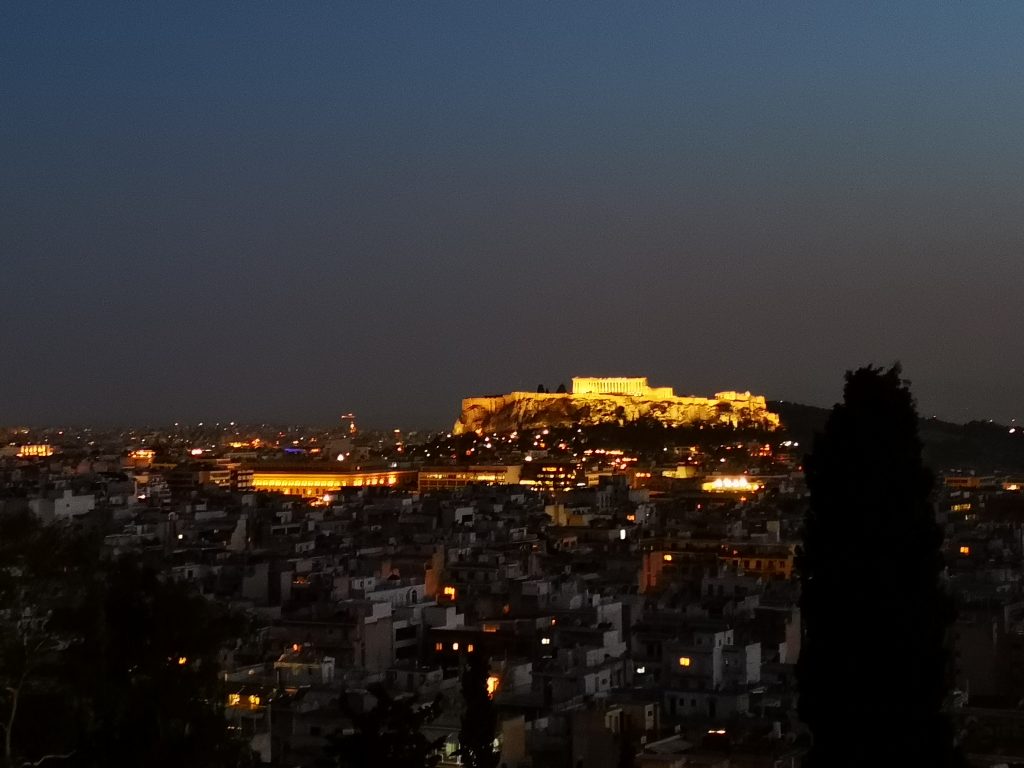
Some cities you immediately warm to – Athens was one of them and we know we only scratched the surface. Daydreams of a house in Ikaria and a pied-à-terre in Athens may have been had; you never know…..

